|
5/30/2022 Why Michigan Public School Parents Might Be Too Strong of a Match for Betsy DeVos and Her Privatization Agenda. By: Sarah LahmRead NowParents in DeVos’s backyard tell right-wing radicals, “No thank you to divisive, partisan agendas in schools.” Culture war issues dressed as serious K-12 classroom concerns, such as trumped-up battles over critical race theory and gender identity, have become useful campaign fodder for the GOP in several key states. In Georgia, Republican lawmakers snuck last-minute language about transgender high school athletes into a more comprehensive education bill as their state’s legislative session was ending on April 5. Democratic legislators immediately cried foul, noting that they were not even informed that the language had been added, and were only given 15 minutes to figure it out for themselves. There was no time to debate whether or not the provision, which could potentially result in transgender student-athletes being banned from participating on girls’ sports teams in public schools, was worth supporting in the first place. Georgia Governor Brian Kemp, who pushed for the legislation, has conveyed to state lawmakers that “ensuring fair play in girls’ sports” by excluding transgender athletes is a top priority for him this session, according to a local news report. In Florida, Republican Governor Ron DeSantis has become famous for signing a bill known as “Don’t Say Gay” into law that seeks to restrict when and how public school teachers can discuss gender and sexual identity issues with students from kindergarten to third grade. Predictably, this bill has become a headline grabber for DeSantis, who is running for reelection as governor this year and is often discussed as a candidate for the GOP presidential nomination in 2024. While these attacks on public education may generate endless PR for aspiring political candidates, parents in local school districts are often left to deal with the fallout. In the face of everything from tense and hyper-politicized school board meetings to attacks on teachers, some parents are getting organized and fighting back. A perhaps unlikely place where parents have organized to defend their public schools and keep them inclusive and welcoming places for all children is in the Grand Rapids area of Michigan, the backyard of former Secretary of Education Betsy DeVos. DeVos, whose hometown is Grand Rapids, is a billionaire with a penchant for funding pro-privatization school choice schemes, which she has pursued both personally and during her time in the Trump administration. As a member of Trump’s Cabinet, DeVos continually drew flack for her often flagrant disregard for public schools and the teachers who staff them. These days, she is busily reasserting her role as a key player in Michigan politics, particularly when it comes to the dismantling of the state’s public education system. But although DeVos says she is a staunch supporter of “parent rights,” some parents affected by her agenda think she is dead wrong. Culture Clash: Newcomers Bringing Liberal Viewpoints to Conservative Christian Community When Becky Olson and her husband first became parents nearly a decade ago, they were living in Chicago. As their two children neared kindergarten age, they found themselves at a crossroads. “We wondered if we should stay in the city or move to the suburbs,” she told Our Schools, as she and her husband contemplated the kind of school community they wanted for their young family. Eventually, they decided to move to a suburb of Grand Rapids, Michigan, where the cost of living is lower than it is in Chicago, and the public schools are well-regarded. Olson is now the parent of a second grader and a soon-to-be kindergartner in the Forest Hills Public Schools District, which pulls in kids from several surrounding communities in the greater Grand Rapids area. Forest Hills is considered a “destination district,” Olson said, thanks to its strong reputation and ability to attract young professionals and their families. Therein lies a problem, perhaps. Olson acknowledged that new residents like herself—who may bring more liberal viewpoints with them—are moving to Grand Rapids in search of affordable homes and stable public schools, leading to something of a culture clash. “This area has always been very conservative,” she noted, thanks in large part to the longstanding presence of the Christian Reformed Church. Betsy DeVos and her family are members of the church, like many other Western Michigan residents with Dutch roots, and it seems impossible to imagine Grand Rapids not being under the influence of either the DeVoses or their church. This topic has been given a close examination by journalists Kristina Rizga and Emily DeRuy. Writing for the Atlantic in 2017, DeRuy explored the way DeVos’s religious and cultural roots inform her belief that public funding for education should be extended to private schools, including those that adhere to nonsecular teachings. Rizga’s piece for Mother Jones in 2017 offered a deeper dive into the way DeVos has used her significant financial resources as a means to push against the separation of church and state in the public education system, mainly by continuously supporting attempts to make school voucher policies a reality. What is currently happening in Grand Rapids and Forest Hills Public Schools is, however, bigger than just the DeVos family and their religious leanings, although such factors are a potent ingredient in what Olson and her fellow public school advocates have been fighting against. Republican/Far-Right Attacks on Public Education Olson said she first noticed trouble brewing in Forest Hills Public Schools at a March 2021 school board meeting. Such meetings are “normally sleepy,” she said, although she quickly learned what others around the country have also come to realize lately—school board meetings have reemerged as a key battleground in the current right-wing assault on public education and democratic governance. Public education in the United States has frequently been a target of right-wing grievance, and flare-ups over what should be taught and who should do the teaching have always taken place. In the early 1990s, for example, Ralph Reed of the Christian Coalition led a push to take over school boards and usher in a new era of conservative Republican candidacies centered around so-called family values. At the March 2021 meeting, Olson recalled conflict bubbling up around recent attempts by some community members to bring more racial equity and diversity to Forest Hills Public Schools. In response, a group of “concerned, Christian parents” signed in to the online meeting, she said, to protest the district’s support for an optional, diversity-focused program known as the Global Learners Initiative. Local media coverage of the meeting documented the controversy surrounding the Global Learners Initiative and noted that some parents consider it evidence of the school district’s “drastic critical race theory and transgender policies.” The program, however, didn’t arise out of thin air. Olson said it was created in response to recent troubling incidents, including the time in 2016 when a handful of students brought Trump and Betsy Ross flags—both have been linked to racism and white nationalism—to a school football game that was hosted by a predominantly Black team. Still, the initiative included the kind of buzzwords, such as equity and inclusion, that have inflamed conservative activists across the country. It didn’t take long for the dust-up over the Global Learners Initiative to snowball into a full-fledged attack on Forest Hills and its school board, complete with a recall campaign aimed at board members that was led by Stefanie Boone—a local parent with her own designs on becoming an elected official. Critical Race Theory Fever Boone is currently vying to become a commissioner in Kent County, which includes Grand Rapids. Her public Facebook page lists her as a Republican/conservative candidate running for office and includes frequent posts attacking “wokeism,” as well as a slew of issues ranging from mask mandates to abortion rights policies. She is also an outspoken critic of Forest Hills Public Schools, where several of her children are students. In a Facebook post from March 22, Boone said she had attended more than 50 school board meetings in and around Forest Hills since 2020, in alignment with other parents who are “tired of the liberal narrative of CRT/DEI/SEL being pushed on our children and in our workplaces.” She is also affiliated with a political action committee called Forest Hills for JUST Education, which filed a very expensive public information request against the local school district. The acronyms stand for a grab bag of policies that are perceived as part of a liberal agenda and are supposedly running amok in public schools, according to right-wing political candidates and think tanks. The list of these liberal policies includes critical race theory (CRT); diversity, equity, and inclusion (DEL); and social-emotional learning (SEL). All three are red meat for Republican activists who perhaps need little convincing that public schools are a threat to be managed with vigilance, before another generation of students supposedly falls under the spell of liberal indoctrination. Boone is not the only would-be Michigan politician using such terms these days. The state’s Democratic governor, Gretchen Whitmer, is up for reelection this year. One of her potential opponents running in the Republican primary, Ryan D. Kelley, has made battling critical race theory and other polarizing school-based issues a central tenet of his campaign. He even showed up at a Forest Hills Public Schools board meeting in February, as outlined in a Michigan Advance article. Some parents in attendance objected to Kelley’s presence, noting that the meeting felt like a campaign event that had nothing to do with actual Forest Hills concerns. (Kelley does not have children in the Forest Hills Public Schools District.) Reporter Allison Donahue’s article in the Michigan Advance described Kelley as railing against the same red herrings, from critical race theory to diversity, equity, and inclusion policies, that Boone has vociferously objected to. The frequent use of these terms by people like Boone and Kelley caught Olson’s eye and helped lead her down her own path of resistance. Parents Fight Back to Protect the Public School System After the March 2021 school board meeting, Olson began to notice a common thread among those who were speaking out against Forest Hills Public Schools. In a matter of weeks, she said, attacks against the school district and its board members began ramping up—alongside a new, DeVos-backed push for school vouchers in Michigan. The new campaign is called Let Michigan Kids Learn, and it aims to gather 500,000 signatures on a petition designed to allow public education dollars to go toward “student opportunity scholarships” (a less offensive term used to refer to school vouchers) in the state. If it gets passed, K-12 education in Michigan would turn into a choice-based marketplace that includes religious schools. DeVos donated $400,000 to this petition drive and has participated publicly in the organization’s events. Although students’ needs are supposedly the group’s main concern, the Let Michigan Kids Learn website prominently states an intention to “take the power away from the unions, away from the governor, and put it in the hands of parents.” If Olson and her fellow Forest Hills defenders are any indication, though, not all Michigan parents are falling for this latest effort to pit them against teachers, unions, and public schools in general. In the face of persistent attacks on their local school districts, Olson and a network of other parents came together to create their own grassroots groups to defend the public education system. There is the Support Forest Hills Public Schools group spearheaded by Olson and others, and another one for a nearby district called Support Lowell Area Schools. “We have had to learn on the fly,” Olson said, about how to set up their own political action committee or track campaign finance reports to find out who is funding groups like Let Michigan Kids Learn. So far, they appear to have accomplished a lot in a short amount of time. The Support Forest Hills Public Schools group is focused on combating “partisan and manufactured attacks” on public education, according to the group’s website, and is working on disseminating information about this through blog posts and other forms of information sharing. In doing so, members of this group helped successfully thwart Boone’s attempt to recall five school board members—a move Olson said would have cost taxpayers thousands of dollars. Additionally, in the absence of any deep-pocketed donors like the DeVos family, the Support Forest Hills Public Schools group has set up an online store selling yard signs and car decals in order to fund their efforts. Each item for sale includes a brightly colored declaration of love for the local school district and its staff members. Maintain Hope Erin Foltz is a parent in the Lowell Area Schools district near Grand Rapids. She is also a key force behind the grassroots group that has sprouted up to support this district, which has faced its own school board recall attempt recently. In Foltz’s view, the attacks being levied against the Lowell school district are not unique. “Many school districts across the nation are currently experiencing the emergence of extremely politicized groups,” she told Our Schools. And these groups are bent on sowing “doubt in the minds of community members and parents” about their kids’ teachers and school administrators, Foltz said. She said that she has witnessed protesters from outside of Lowell come to the town’s school board meetings and hurl allegations at board members, including now-familiar accusations about all the “liberal agendas” that are supposedly at play in the district. Every time there is a meeting, Foltz said, there is a new round of fearmongering from agitators. “These attacks seem orchestrated to maintain a steady stream of shock value,” in Foltz’s estimation, as a means to “keep their side engaged and enraged, and to keep the opposition (other parents like us, the board of education, teachers, and administrators) exhausted and weary,” she said. (Republican senators deployed similar tactics during Judge Ketanji Brown Jackson’s U.S. Supreme Court confirmation hearings.) Still, Foltz is not ready to give up. Getting organized, informed, and engaged has proven to be a strong line of defense for her, Olson, and their fellow pro-public school activists. “If other parents are faced with these divisive, contradictory attacks in their school districts, I would say not to give up hope,” Foltz said. It is important to remember, she added, that there are typically many more people who support public education and want to hold schools accountable without destroying them. Find them, Foltz advised, and then join forces to “collectively say no thank you to divisive, partisan agendas in schools.” AuthorSarah Lahm is a Minneapolis-based writer and researcher. Her work has appeared in outlets such as the Progressive and In These Times. Follow her on Twitter @sarahrlahm. This article was produced by Our Schools. Archives May 2022
0 Comments
Anti-Semitism has a long history in Western Civilization, and is even a major problem today. Many claim that the roots of anti-Semitism are to be found in the development of early Christianity and its interactions with the Roman Empire. James Carroll, a Roman Catholic scholar, at the beginning of the present century set out to explain how this anti-Jewish mind set was developed in the Catholic Church at its beginning. He aimed to explain the role of the Church in the Holocaust. His book is entitled Constantine’s Sword (2001). Despite his stated purpose, he ends up with a nuanced apologetic for his religion and dilutes Catholic responsibility by deflecting some of the blame onto the Enlightenment, Luther, and Marxism. This apologetic begins early in the book when he mentions Nazi anti-Semitism “with its tap root planted perhaps in a particularly Lutheran hatred of Jews.” Hitler, however, was a Catholic and evidently a good one as the Church celebrated a Mass for the repose of his soul after he killed himself at the end of World War II. He learned his anti-Semitic catechism in Catholic Austria. Luther’s anti-Semitism was a carry-over of the existing anti-Semitism of classical and medieval Catholicism. Carroll does write, however, “the hatred of Jews has been no incidental anomaly but a central action of Christian history, reaching to the very core of Christian character.” Nevertheless, it “did not have to be” and his book “opens to possibilities of a new future.” Carroll wants to have his Eucharist and eat it too. He wants to condemn anti-Semitism as “no anomaly” yet validate the religion responsible for it. He will have an unhappy consciousness in the company he keeps as Hitler and the Nazis were never excommunicated by his church — that censure being saved for the real bad guys— the Communists. Carroll has no class understanding of fascism and blames the Holocaust on the German people — it “was the work of an entire people.” But he seems confused on this issue as elsewhere he says it was the Nazis “who murdered the Jews.” Carroll’s remarks on Marx and the Soviet Union need to be scrutinized. He says Marx's Jewish descent is repressed. “In the Soviet Union this family history was never referred to.” And there was a “Soviet policy of never referring to Marx’s Jewish roots.” But, in the Soviet biography of Marx, published in 1968, we read that Heinrich Marx, Marx’s father, “came from a rabbinical family.” The family converted to Christianity (before Marx was born) to escape persecution. Carroll refers to Marx as “the ex-Christian Jew hater.” This intemperate ranting about Marx stems from an early essay (1843) “On the Jewish Question,” directed not against Jews but religion. This was before he and Engels began their life long collaboration and before he developed a consistent materialist philosophy. Two points should be noted. First, it was written to refute articles written by Bruno Bauer that denied Jews civil equality. Bauer argued Jews would have to abandon their religion to obtain equality and Marx attacked that notion. Second, when Marx’s article was published it was viewed favorably by a Jewish newspaper that saw Marx as a supporter of Jewish rights. One has to pervert the facts to claim Marx was a “Jew hater.” Readers are referred to Julius Carlebach’s Karl Marx and the Radical Critique of Judaism (missing from Carroll’s bibliography) and “Judaism” in A Dictionary of Marxist Thought. When Carroll turns his attention from Marxism (as well as Voltaire and the Enlightenment tradition — he is a non-officiating Roman Catholic priest and hostility to these targets were no doubt ingrained in his education) and focuses on the role of the Church his indictments are convincing. He writes “in the 1930s there is reason to believe, vast numbers of Catholic Germans, and perhaps other Catholic Europeans as well … would have preferred Hitler to Pius XII” [and whose “moral” teachings would be the cause of that?]. “Shall I bring them into conflicts of conscience?” Pius asked, referring to Catholic Germans, in explaining why he could not protest the extermination of Jews. The Church did not protest the extermination of Jews because it did not care about the Jews — unless they converted to Catholicism. Carroll himself notes that “the Church laid a tentative claim to authority regarding baptized Jews” but the Vatican “at its highest level sent a signal both to Hitler and to the German Catholic Church that the Jews ‘facing a wretched fate’ were on their own.” The logical conclusion from Carroll’s evidence is that the leadership of the Catholic Church, besides having lost all claims to having any moral authority, is both reactionary and a blight on progressive humanity. One would think this book would be a call to abandon a belief system implicated in the Holocaust and one that had preached the hatred of Jews for over two thousand years. But no. Carroll concludes: “This tragic story offers a confirmation of faith too. God sees us as we are and loves us nevertheless.” Please! Some God, some love! - This article is a revised version of a January 2004 publication in Political Affairs. AuthorThomas Riggins is a retired philosophy teacher (NYU, The New School of Social Research, among others) who received a PhD from the CUNY Graduate Center (1983). He has been active in the civil rights and peace movements since the 1960s when he was chairman of the Young People's Socialist League at Florida State University and also worked for CORE in voter registration in north Florida (Leon County). He has written for many online publications such as People's World and Political Affairs where he was an associate editor. He also served on the board of the Bertrand Russell Society and was president of the Corliss Lamont chapter in New York City of the American Humanist Association. Archives May 2022 Anxiety about the expansion of the North Atlantic Treaty Organization (NATO) toward the Russian border is one of the causes of the current war in Ukraine. But this is not the only attempt at expansion by NATO, a treaty organization created in 1949 by the United States to project its military and political power over Europe. In 2001, NATO conducted an “out of area” military operation in Afghanistan, which lasted 20 years, and in 2011, NATO—at the urging of France--bombed Libya and overthrew its government. NATO military operations in Afghanistan and Libya were the prelude to discussions of a “Global NATO,” a project to use the NATO military alliance beyond its own charter obligations from the South China Sea to the Caribbean Sea. NATO’s war in Libya was its first major military operation in Africa, but it was not the first European military footprint on the continent. After centuries of European colonial wars in Africa, new states emerged in the aftermath of World War II to assert their sovereignty. Many of these states—from Ghana to Tanzania—refused to allow the European military forces to reenter the continent, which is why these European powers had to resort to assassinations and military coups to anoint pro-Western governments in the region. This allowed for the creation of Western military bases in Africa and gave Western firms freedom to exploit the continent’s natural resources. Early NATO operations stayed at the edge of Africa, with the Mediterranean Sea being the major frontline. NATO set up the Allied Forces Southern Europe (AFSOUTH) in Naples in 1951, and then the Allied Forces Mediterranean (AFMED) in Malta in 1952. Western governments established these military formations to garrison the Mediterranean Sea against the Soviet navy and to create platforms from where they could militarily intervene in the African continent. After the Six-Day War in 1967, NATO’s Defense Planning Committee, which was dissolved in 2010, created the Naval On-Call Force Mediterranean (NOCFORMED) to put pressure on pro-Soviet states—such as Egypt—and to defend the monarchies of northern Africa (NATO was unable to prevent the anti-imperialist coup of 1969 that overthrew the monarchy in Libya and brought Colonel Muammar Gaddafi to power; Gaddafi’s government ejected U.S. military bases from the country soon thereafter). Conversations at NATO headquarters about “out of area” operations took place with increasing frequency after NATO joined the U.S. war on Afghanistan. A senior official at NATO told me in 2003 that the United States had “developed an appetite to use NATO” in its attempt to project power against possible adversaries. Two years later, in 2005, in Addis Ababa, Ethiopia, NATO began to cooperate closely with the African Union (AU). The AU, which was formed in 2002, and was the “successor” to the Organization of African Unity, struggled to build an independent security structure. The lack of a viable military force meant that the AU often turned to the West for assistance, and asked NATO to help with logistics and airlift support for its peacekeeping mission in Sudan. Alongside NATO, the U.S. operated its military capacity through the United States European Command (EUCOM), which oversaw the country’s operations in Africa from 1952 to 2007. Thereafter, General James Jones, head of EUCOM from 2003 to 2006, formed the U.S. Africa Command (AFRICOM) in 2008, which was headquartered in Stuttgart, Germany, because none of the 54 African nations were willing to give it a home. NATO began to operate on the African continent through AFRICOM. Libya and NATO’s Framework for Africa NATO’s war on Libya changed the dynamics of the relationship between the African countries and the West. The African Union was wary of Western military intervention in the region. On 10 March, 2011, the AU’s Peace and Security Council set up the High-Level ad hoc Committee on Libya. The members of this committee included then-AU Chairperson Dr. Jean Ping and the heads of state of five African nations—former President of Mauritania Mohamed Ould Abdel Aziz, Republic of Congo’s President Denis Sassou Nguesso, Mali’s former President Amadou Toumani Touré, former President of South Africa Jacob Zuma and Uganda’s President Yoweri Museveni—who were supposed to fly into Tripoli, Libya, and negotiate between the two sides of the Libyan civil war soon after the committee’s formation. The United Nations Security Council, however, prevented this mission from entering the country. At a meeting between the High-Level ad hoc Committee on Libya and the United Nations in June 2011, Uganda’s Permanent Representative to the United Nations during that time, Dr. Ruhakana Rugunda, said, “It is unwise for certain players to be intoxicated with technological superiority and begin to think they alone can alter the course of human history toward freedom for the whole of mankind. Certainly, no constellation of states should think that they can recreate hegemony over Africa.” But this is precisely what the NATO states began to imagine. Chaos in Libya set in motion a series of catastrophic conflicts in Mali, southern Algeria and parts of Niger. The French military intervention in Mali in 2013 was followed by the creation of the G5 Sahel, a political platform of the five Sahel states—Burkina Faso, Chad, Mali, Mauritania and Niger—and a military alliance between them. In May 2014, NATO opened a liaison office at the AU headquarters in Addis Ababa. At NATO’s Wales Summit in September 2014, the alliance partners considered the problems in the Sahel that entered the alliance’s Readiness Action Plan, which served as “[the] driver of NATO’s military adaptation to the changed and evolving security environment.” In December 2014, NATO foreign ministers reviewed the plan’s implementation, and focused on the “threats emanating from our southern neighborhood, the Middle East, and North Africa” and established a framework to meet the threats and challenges being faced by the South, according to a report by the former President of the NATO Parliamentary Assembly, Michael R. Turner. Two years later, at NATO’s Warsaw Summit in 2016, NATO leaders decided to increase their cooperation with the African Union. They “[welcomed] the robust military commitment of Allies in the Sahel-Sahara region.” To deepen this commitment, NATO set up an African Standby Force and began the process of training officers in African military forces. Meanwhile, the recent decision to eject the French military is rooted in a general sensibility growing in the continent against Western military aggression. No wonder then that many of the larger African countries refused to follow Washington’s position on the war on Ukraine, with half the countries either abstaining or voting against the UN resolution to condemn Russia (this includes countries such as Algeria, South Africa, Angola and Ethiopia). It is telling that South Africa’s President Cyril Ramaphosa said that his country “is committed to advancing the human rights and fundamental freedoms not only of our own people but for the peoples of Palestine, Western Sahara, Afghanistan, Syria and across Africa and the world.” The ignominy of Western—and NATO’s—follies, including arms deals with Morocco to deliver Western Sahara to the kingdom and diplomatic backing for Israel as it continues its apartheid treatment of Palestinians, bring into sharp contrast Western outrage at the events taking place in Ukraine. Evidence of this hypocrisy serves as a warning while reading the benevolent language used by the West when it comes to NATO’s expansion into Africa. AuthorVijay Prashad is an Indian historian, editor, and journalist. He is the chief editor of LeftWord Books and the director of Tricontinental: Institute for Social Research. He is a senior non-resident fellow at Chongyang Institute for Financial Studies, Renmin University of China. He has written more than 20 books, including "The Darker Nations" and "The Poorer Nations." His latest book is "Washington Bullets," with an introduction by Evo Morales Ayma. This article was produced by Globetrotter. Archives May 2022 On May 3 of this year, news outlets and social media platforms shook in terror and fear as the political journal, Politico, leaked Supreme Court Justice Samuel Alito ‘s draft opinon of the Court’s decision to overturn the landmark case of Roe v Wade, which solidified by law a woman’s reproductive right to terminate her pregnancy. Once Roe is overturned, the right to obtain an abortion in the U.S. will go to the states, with many conservative states armed and ready to ban abortion rights. The hot-button issue of abortion raises many questions about wealth, access, privilege, and morality, and when drawn along racial lines, the issue becomes even more grey. However, the main question Roe v Wade set out to answer was the question of choice, specifically, is it in the constitutional rights of a woman to choose to carry her pregnancy to term? Debates all over social media sparked about choice, and how no woman should be forced to use her body as the vehicle to save another’s life, citing McFall v Shrimp as legal precedent. Others argue that women have the same right to bodily autonomy as men, who do not need legislation or spousal consent to legally obtain a vasectomy, or to access erectile dysfunction medication, such as Viagra. With debates both on and offline regarding body autonomy under the law, it is worth questioning how, under capitalism, body autonomy is essentially prohibited, making the overturn of a woman’s right to choose more the norm than the exception. Under capitalism, no one has the right to choose, and body autonomy is seen as a fundamental risk to the system, as opposed to a fundamental human right. Capitalism is a Body- Snatcher Under the economic system of capitalism, the means of production, as in, the resources and facilities that produce goods, are owned and controlled by private entities for profit, or capital, that is then used to produce more profit, or capital. Capitalism is inherently hierarchical, as the system must have both capitalists, those who own the means of production, and those who work to produce the capital, known as the proletariat. The means of production needs bodies: people to harvest crops, make clothing, serve food, and run franchise stores. Capitalism does not run without bodies, and thus the need for capitalism to run will result in the stripping away of the proletariat’s physical body to meet the needs of the system. What rights do you have over your body under capitalism? Because Capitalism needs bodies to run, the system will force incentives on you in order to do the undesirable, non-beneficial work of feeding the system. What you want for your body stands in direct opposition to what capitalism needs from your body. You want your body to relax and destress, Capitalism needs your body to be overworked and run-down. You want your body to utilize its functions four your benefit: making you food, making music, making love; capitalism needs your body to serve its need: making a profit. When capitalism is the law of the land, and its incentive is dire poverty, your needs come second, or do not come at all, to the needs of the true Supreme Court: the Capitalists. Women’s Bodies Under Capitalism Women’s bodies in a capitalist society are in a unique position, as both the means of production and the capital. Before The United States was formerly the United States, it was a collection of slave-holding stakes, where enslaved Black women and girls were both unpaid sexual gratification and unpaid labor. Their sexuality and reproductive potential, exploited through rape and forced breeding on breeding farms, were the means to produce more capital, as in, more slaves, whose bodies would in turn be used to produce either more inanimate capital to be sold for profit, or human capital, which could be sold or exploited once more to create more capital. As barbaric and inhumane as this practice seemed prior to the end of slavery in 1865, the use of women’s sexuality and reproduction to serve capitalism has gone essentially unchanged from the days of American enslavement. From the Mill Girls in Lowell Massachusetts to prostitutes and other sex workers, to working mothers, are all, though not necessarily by choice, serving the interest of Capitalism by nature of their existence, and the literal price society places of beauty, sex, youth, and ability to bear children. The Mill Girls and other children across the United States engaged in child labor at textile mills for the profit of corporations, sex workers use the value that has been placed on their sexuality as the means to produce profit, either for their strip club, the massage parlor, or online sex platforms. During a woman’s pregnancy journey, pregnancy is used as the means to extract more profit: frequent trips to the OB-GYN, the consumption of prenatal vitamins, and the buying of baby toys, blankets and necessities. When the pregnant woman delivers, which in the US can cost upwards of $10,000, and goes back to work (to produce capital), the baby is used as the means for profit: paying for preschool, hiring a nanny, and paying a family member or babysitter to care for the child. The woman is essentially breeding a new workforce from the time she conceives, and the value based on her human capital (her child) is determined strictly by a system in need of bodies. Abortion- The Right to Choose or A Stance Against Capitalism? The ongoing debate about, and the potential overturn of, abortion raises timeless questions about inalienable rights, the requirements of personhood, and the privileges surrounding giving birth. Women should have the right to choose if and when they carry out a pregnancy, but, perhaps just as important, women deserve a say in whether or not they will use their body and the life of the child in their body as a vehicle to generate capital. The child born into this word is forced to participate in capitalism, perhaps abortion is the mother’s way of giving their child the freedom that capitalism will inevitably strip them of. Abortion is not the antidote for capitalism. Women who choose to terminate their pregnancy are not making a political stance, they are making a practical one. However, the practicality of this decision spits in the face of an economic system that lacks practicality at its foundation. There is no bodily autonomy under capitalism, for any person, but abortion is a start; not the act of termination itself, but the desire to take back your inalienable right to choose what grows in and comes out of, one’s body. AuthorRebecca Elliott is a writer, and public health professional currently residing in the Boston area. A policy analyst by profession, Rebecca has been trained in public health research, policy, and law. She has a deep love of knowledge, and believes that education is and always should be inherently revolutionary. When she is not diving into the politics of education, she enjoys reading, cooking, and finding the best ice cream spots. Archives May 2022
Former University of Toronto Professor of Clinical Psychology Jordan Peterson recently received a flurry of criticism on twitter for a tweet in which he criticizedSports Illustrated cover model Yumi Nu. His tweet (below) not only criticized her looks, but also suggested that her appearance was an authoritarian attempt by the left to force him to appreciate her beauty.
The backlash from Twitter and the media was swift and came from social media influencers (from online political commentators likeHasan Piker andVaush), independent news outlets (The Young Turks), and even mainstream news sources (NBC News,New York Post), international news outlets (The Independent, andToronto Sun). Incidents like the aforementioned tweet, in the current political climate of America, are becoming increasingly more common as the culture war issues find themselves at the forefront of the public mind. Popular intellectual figures, like Peterson, have built their careers off of stoking these hot bed issues and claiming injustice when people disagree with their ideas.
What most of the comments and reactions seem to have missed is Peterson’s follow up tweet (above) in which he justifies his position by linking to scientific articles to validate his opinion. Can science be used to measure whether or not someone is attractive? While some recent studies have tried to do just that, many more studies refute these claims.
The sociology of human sexuality and race has long held that concepts like beauty and race are social constructions -- determined by a range of cultural, biological, and other complex social factors. Classic television shows,like The Twilight Zone, also remind us that beauty is in the eye of the beholder rather than a universal characteristic. Yet, the IDW and practitioners of this kind of science try to apply their model of science to nearly everything—linking and reducing all kinds of aspects of human behavior as serving an evolutionary function. However, the work of those in this field who are respected are far more careful than the IDW in theirclaims. Against the overly deterministic model posed by the IDW, currentconsensus, among scholars in this field, is that human nature is a complex combination of biology and other social factors—often noting that they can’t tell us with any great deal of precision what their findings necessarily mean for society at large. The kind of model advocated by the IDW more closely resembles that of the 18th and 19th Century biological determinism—the kind that served as the basis foreugenics programs in Nazi Germany and even here in the United States. Peterson’s claims run the full range of biological determinism, from justifying social hierarchies as natural to why patriarchy should be the preferred organizing principle in societies. He also appears to be, at points in his book, justifying men who engage in violent acts–like the Buffalo shooting–by blaming that young men have to endure an unfair burde.To say that the ideas espoused by Peterson and the IDW connect to white supremicist ideology is more than just conjecture, as their ideas can be traced from academia to far-right groups online. One need only look to the end of May 2022 when the Buffalo shooter took the lives of 10 African Americans. Far-right groups rejoice in Peterson’s claims that hierarchies are natural and good for society, as they serve as a “legitimate” scientific basis for promoting racist ideologies. Laced throughout the manuscript left behind by the Buffalo shooter are references to a range of claims espoused by race scientists. These include tweets, memes, and links to prominent thinkers in this field like Steven Pinker and his colleagues who have published and espoused flawed literature directly cited by the shooter. The most infamous of these models is Steven Murray’s “The Bell Curve” in which intelligence and race were argued to be correlated–the implication being that people of color are “naturally” somehow less intelligent. These models continue to be fundamentally invoked by prominent academics like Stanley Goldfarb, a former Dean of Medicine and current faculty at the University of Pennsylvania's medical school, who also opposes anti-racist efforts in medicine. Taken together, these events suggest that biological essentialism has permeated the ivory tower of academia more than many realize. While some of the examples mentioned here are explicit in their bigotry, there are far more cases of simple miscommunication (or no communication at all) leading to their ideas being co-opted by far right groups.
Some anti-racist academics in genetics have criticized their colleagues (above) and called for change from within. They emphasize that scientists can and should protect against the exploitation of their work in recognizing the importance of clearly communicating their findings. When scientists fail to consider the ways their ideas might be used, for good and for bad, the results can be disastrous. Such was the case when somelevied a social constructionist critique of the use of the psychiatric system, which was subsequently used by conservatives to justify dismantling thestate public health system. Scientists must use caution when trying to convey their ideas - lest they be used to justify heinous acts, including terrorism.
The radicalization of the Buffalo shooter should serve as a warning to other scholars, as he was one in a long line of domestic terrorists who relied heavily upon “race science” to justify their actions. The same kind of logics have also motivated people to commit heinous against against the LGBTQ+ community. While the shooter may have lacked scientific literacy necessary to understand the studies he cites, researchers must work to not be complicit in this process. Whether it be scientific racism to justify one’s beliefs, or a lack of fully considering the larger impact of one’s findings, scientists need to better understand how working in science is a social activity. Science itself is a powerful tool when used in pursuit of helping lead the way towards the betterment of society, and it is equally a tool for harm when used to naturalize hierarchies and inequality found throughout society. Horkheimer’s critique of instrumental reason reminds us that science is a tool used to pursue a goal–to what end these tools are used is a question of what we want to prioritize. AuthorChristopher T. Conner is Teaching Assistant Professor of Sociology at The University of Missouri, Columbia. He has published work on the Philosophy of Social Science, LGBTQ+ culture, Technology, and Misinformation/Disinformation. His work has been featured in a variety of outlets including YOUNG: Journal of Nordic Youth Culture, The Sociological Quarterly, Deviant Behavior, Symbolic Interaction, and Sexualities. He has also co-edited numerous anthologies including The Gayborhood: From Sexual Liberation to Cosmopolitan Spectacle, Forgotten Founders and Other Neglected Social Theorists, and Studies in Symbolic Interaction: Subcultures. ArchivesMay 2022 5/29/2022 The People’s Summit for Democracy Offers a Progressive Vision to Counter U.S. Dominance in the Region. By: Sheila Xiao and Manolo De Los SantosRead NowIn a recent interview, Brian Nichols, the U.S. assistant secretary of state for Western Hemisphere affairs, was asked the question that is on everyone’s mind ahead of the June 2022 Summit of the Americas in Los Angeles, California: Will three particular countries in Latin America (Cuba, Venezuela, and Nicaragua) be invited? Nichols responded with neither hesitation nor equivocation that the answer was no. Speaking on behalf of President Joe Biden, he further added that countries whose “actions do not respect democracy”—as the U.S. government views these three countries and others like them—“will not receive invitations.” Nichols’ seemingly offhand comment, said with the usual arrogance of U.S. officials and calling the three countries “regime[s that] do not respect [democracy],” sent a shockwave through the region that the U.S. was likely not expecting. Throughout Latin America, the reaction was immediate. Leaders such as Mexican President Andrés Manuel López Obrador, Bolivian President Luis Arce, and Honduran President Xiomara Castro, as well as several heads of state from the Caribbean Community (CARICOM) including Antigua and Barbuda’s Prime Minister Gaston Browne and Trinidad and Tobago’s Prime Minister Keith Rowley, all expressed that they would not participate in the summit if the exclusions of Cuba, Venezuela, and Nicaragua were maintained. CARICOM has called for a summit that ensures “the participation of all countries of the hemisphere.” Biden’s insistence on continuing the U.S. policy of exclusion and aggression against Latin America has made his summit a failure before it has even begun. Mired in controversy and criticism, the Biden administration has not been able to build consensus around any common agenda because of the double standards it creates. While the U.S. may have already moved on, the memories of recent coups and interventionist plots by the U.S. government in the region are still fresh. The U.S. and the Organization of American States (OAS) both helped engineer a coup in Bolivia in 2019 that overthrew a democratically elected government. There Is No Americas Without Cuba The summit since its inception has been met with skepticism by progressives across Latin America due to the outsized or, more accurately, domineering role played by the U.S. and the OAS with regard to invitations, agenda, and vision. However, this year the U.S. seems to have underestimated the important political shifts in the region and their impact on the political legitimacy of the U.S. The U.S. does not seem to have anticipated any challenges to its leadership of the summit, but the pushback against U.S. hegemony comes as no surprise to most Latin Americans and those around the world who have been following the region’s politics of late. Since the last summit in 2018, the political map has undergone radical transformations. Not only are progressive governments outnumbering reactionary ones across the region, but many of them emerged precisely out of a deep rejection of U.S.-backed governments and policies, and the conditions that they create for the people. Across the region, countries whose public sectors were undermined for decades by U.S.- and IMF-imposed neoliberal policies saw their societies and economies devastated during the COVID-19 pandemic. According to the United Nations Economic Commission for Latin America and the Caribbean (ECLAC), due to the COVID-19 pandemic, the extreme poverty rate in the region rose from 13.1 percent in 2020 to 13.8 percent in 2021, representing a setback of 27 years. At more than 2.7 million deaths from COVID-19, the Americas represent 43.6 percent of global COVID-19 deaths despite constituting only 12 percent of the world population. The outliers in this general trend of economic crisis and humanitarian emergency were Cuba, Venezuela, and Nicaragua, which suffered some of the lowest rates of deaths from COVID-19 in the region and the world due to their comprehensive strategies of, above all else, putting the health and well-being of their citizens before profits. This policy extended beyond their national borders. From as early as March 2020, Cuba was already sending medical brigades to countries across the region and the world to support their responses to COVID-19. With Cuba’s development of five vaccines against COVID-19, the country has worked closely with other global south countries to distribute vaccine science and technology to promote localized production and distribution; meanwhile, U.S. pharmaceutical and biotechnology companies like Pfizer and Moderna were turning record profits. At the height of the pandemic in Brazil, Venezuela sent oxygen to the city of Manaus, which had run out of the vital supply despite pleading for federal aid from the Brazilian government under President Jair Bolsonaro. It has become glaringly clear that countries in the region have everything to gain from maintaining cooperation and partnerships with the countries the U.S. declares to be its enemies. Democracy for Whom? The U.S. excuses its aggressive policy against Cuba, Venezuela, and Nicaragua by citing these countries’ alleged human rights violations and the so-called threats that these countries pose to democracy. However, many have started to question what kind of democracy exists in a country where 1 million people have died from COVID-19, 2.2 million people are in prison (accounting for more than 20 percent of the world prison population), where police kill an average of three people a day (with Black people being 2.9 times more likely to be killed by police than white people), and where $801 billion is spent on the military (the U.S. makes up 38 percent of global military spending). The majority of people in the Americas have rejected this hypocritical moral high ground and the premise that the U.S. has the right to decide who participates in what forum and with whom. This is why a coalition of more than 100 organizations from across the region have come together to organize the People’s Summit for Democracy to counter the improperly named “Summit of the Americas.” The People’s Summit carries forward the legacy of movements against neoliberal capitalism and U.S. imperialism that have organized counter-summits every time the U.S. organizes its Summit of the Americas. The People’s Summit will be held in Los Angeles, California, on June 8-10, and seeks to bring together the voices of people whom the U.S. would prefer to silence and exclude. Immigrant organizers in Los Angeles will take the stage with landless rural workers from Brazil to discuss their visions of democracy for all. Feminist organizers from Argentina to New York will share strategies of how to fight for abortion access and counter the reactionary right-wing attacks on women and LGBTQ people. These unprecedented times call for more cooperation and less exclusion. While unfortunately the U.S. government also denied the visas of a 23-person delegation of Cuban civil society to the People’s Summit, the bonds between the Cuban people and the people of the Americas are unbreakable, and despite their best efforts, the U.S. cannot silence the aspirations of the people. For the Americas, which are on the cusp of transformative times, the age of the Monroe Doctrine is over. AuthorSheila Xiao is a researcher and community organizer. She is chair of the Los Angeles chapter of the ANSWER Coalition and the co-founder of the peace organization Pivot to Peace. She is a co-coordinator of the People’s Summit for Democracy. This article was produced by Globetrotter. Archives May 2022 Marx, my father used to say, was among the three most famous Jews of all time—the other two being Einstein and Jesus Christ. Capital (Das Kapital) is unquestionably his major work and for my purposes I will focus on its latter chapters: The Secret of Primitive Accumulation and more importantly, chapter 32, The Historical Tendency of Capitalist Accumulation. My goal in this work is not merely to restate the contents of these chapters, but to apply the ideology to the most pressing crisis humanity faces presently: Climate Change. As good Marxists we do not view the climate crisis as an issue that arises chiefly out of political indecision or collective action problems. Rather, the climate crisis is resultant of the relationships our current economic form imposes upon us, between workers and owners and between producer and mother nature. We begin necessarily, with Marx who in accordance with his general theoretical approach, examined the nature of the economy and especially the relations of production, for there were to be found the basic conditions out of which everything else grew. We arrived at the present condition according to the liberal intellectual current–where workers own nothing and serve corporate masters of glass and steel because long ago there existed two kinds of men–the industrious and the lazy. And so, as years became decades, and decades became centuries and so on, the former became master of the latter when at last the lazy man had nothing left to sell but his skin. Or so the anecdote goes. In actual history, writes Marx, “it is a notorious fact that conquest, enslavement, robbery, murder, in short, force, play the greatest part”. Take the Viking as an example; unable to accumulate because of their agricultural economy, they would sail south and plunder. This is primitive accumulation in action. The capital-relation necessary for the creation of capitalism, “presupposes a complete separation between the workers and the ownership of the conditions for the realization of their labor”. Thus, the historical process that unfolded, resulting in capitalism, “can be nothing other than the process which divorces the worker from the ownership of the conditions of his own labor”. So, what’s the big deal? Has not serfdom and slavery been eliminated by this system (when the US is not actively creating slave economies in Libya for instance)? Was not all that blood and conquest worth it in the end? Shouldn’t we thank the warlord of feudal complexion for emancipating us from capital? Free workers, that which we have become, are neither “part of the means of production themselves, as would be the case with slaves, serfs, etc., nor do they own the means of production, as would be the case with self-employed peasant proprietors”. We are free therefore, from any means of production of our own. Of course, so long as this “freedom” is seized upon by capital, we remain in relationships of pure subservience. Many early capitalist thinkers like Adam Smith saw the emergence of free workers, numerous sole proprietorships, and small-scale industry as the herald of an age of new-found freedom. This period in which the market was dominated by no one quickly gave way to concentrated corporate power. The mode of production envisioned by Smith “presupposes the fragmentation of holdings, and the dispersal of the other means of production. As it excludes the concentration of these means of production, so it also excludes cooperation, division of labor within each separate process of production, the social control and regulation of the forces of nature, and the free development of the productive forces of society”. It is, like the post-war period in the United States, anomalous. At a certain stage of capitalist development, the world envisioned by capitalist-idealists is torn asunder by the very conditions capitalism creates. Its inherent productivist drive annihilates the “dwarf-like property of the many”, becoming the giant property of the few. The inevitable concentration of corporate power as foreseen by Marx in Capital, dashed the visions of thinkers like Adam Smith who saw early capitalism as an escape from the moribund power structures of god and king. Smith’s hope was that “freeing up markets would dramatically expand the ranks of the self-employed, who would exercise talent and judgment in governing their own productive activities, independent of micromanaging bosses”. He saw rightly, that the political and ideas such as freedom did not by some magic, come to be irrelevant in the workplace. To Smith, labor was inherently political and the capitalism of his time he hoped, would introduce freedom not just in name, but as a characteristic of everyday work. As the entrepreneur gave way to the conglomerate, a new reality emerged. Capital’s need to expand infinitely, to extract and exploit at ever increasing levels, has led it to exercise an undeniable coercive power over the conditions of our lives. Berle and Means, in The Modern Corporation and Private Property warned of the concentration of economic power brought on by the rise of the large corporation, stating that “unchecked corporate power had potentially serious consequences for the democratic character of the United States”. Elizabeth Anderson, in her work Private Government took this idea a step further, characterizing the corporation as an island of dictatorial power, unbridled by the machinations of the broader “democratic”, “egalitarian” society. She writes, that “most workers in the United States are governed by communist dictatorships in their worklives”, dictatorships with the “legal authority to regulate workers’ off-hour lives as well—their political activities, speech, choice of sexual partner, use of recreational drugs, alcohol, smoking, and exercise”. Setting the hilarity of characterizing raw corporate power as in any way “communist” aside it is clear that even the most hackish, brain-dead liberal thinkers can see that democracy and freedom are farcical, when the centers of power lie away from the strictly political, when big business maintains hegemony over the social life—an idea that goes back to liberal philosophers like John Dewey. As one capitalist is stricken down by another, corporate power becomes ever-more centralized. “Hand in hand with this centralization, or this expropriation of many capitalists by a few, other developments take place on an ever-increasing scale, such as the growth of the cooperative form of the labor process, the conscious technical application of science, the planned exploitation of the soil, the transformation of the means of labor into forms in which they can only be used in common, the economizing of all means of production by their use as the means of production of combined, socialized labor, the entanglement of all peoples in the net of the world market, and, with this, the growth of the international character of the capitalist regime” writes Marx. The contradiction between the centralization of the means of production and the “socialization of labor reach a point at which they become incompatible with their capitalist integument” he goes on. Owners of the means of production necessarily subscribe to the notion that there is no motive but the profit motive. In this neoliberal age, workers find themselves largely economically and politically powerless—with almost no control over the conditions that shape their lives. The present period in capitalism’s development, when monopoly and consolidation have become the defining feature of the economy, has thusly produced a force more powerful than the worker and owner themselves. Just as the prisoner is doomed to the rack, so too is the executioner to the turning of the wheel. Corporations—capital itself has become the great power of the world and as a result all other spheres of power bend towards it. Present day capitalism seems to be nearing its biospherical limit however. Despite its recent successes in kicking the can down the road on global socialist revolution, the tension between capital and worker ultimately resides within the social sphere. The hard barrier to its and our continued survival is nature itself. Mark Fisher write (yes I know), “the fantasy structure on which [late capitalism] depends: a presupposition that resources are infinite, that the earth itself is merely a husk which capital can at a certain point slough off like a used skin, and that any problem can be solved by the market”. The ultimate contradiction capitalism must reckon with is that increasing consumption diminishes the viability of the natural sphere, that which is required for capitalism’s continued existence. A spectre thus haunts the capitalist world order—looming over its future and undermining the foundation that it rests upon—the spectre of climate change. Rather than meet this threat, the forces of capital have retreated to their own Potemkin world of board rooms and PR departments where capital and climate can coexist. The predominant fantasy they have thus produced and imposed upon the broader society, is that we can consume our way out of a fundamental truth—that we live in a world of finite limits. This system’s inherent expansionist imperative as described by Marx, has “resulted in the appropriation of the global commons (i.e., the atmosphere and oceans, which are used as sinks for waste) and the carbon absorption capacity of the biosphere”. Under capitalism, there is a “systemic tendency for population, production and consumption to expand on increasingly large scales”. So long as this system dominates economic and social relations “individuals and businesses fall under a constant and inescapable pressure to purse economic growth”. Marx, in the third volume of Capital, recognized that the capitalist system violated ecological laws. He observed that “the soil was depleted continually of its necessary nutrients, decreasing the productive potential of the land. The degradation of the soil led to a greater concentration of agricultural land among a small number of proprietors who adopted even more intensive methods of production, including the application of artificial fertilizers, which placed demands on other natural resources”. Resulting agriculture production, it is argued, “has become the art of turning oil into food”, “constant inputs [being] needed simply to sustain this operation”. Marx’s observation illustrates a fundamental truism, that “an infinitely growing economy will sooner or later lead to an environmental impact on an increasingly large scale”. Enter the fundamental ecological contradiction of capitalism. Despite its reliance on the natural world for its material operations, capitalism’s processes necessarily “maintain the production cycle, while disrupting natural cycles”. The contradiction between growth and sustainability results in capitalism’s tendency “to undermine the conditions of its own reproduction”. Put simply, it is a system that erodes the foundation of its own existence. The institutions of capitalism cannot themselves address the climate crisis. There being no other goal than accumulation, expansion, and profit—the system at its most base level, liquidates nature and calls it profit, redounding to its own instability. The contradiction between growth and environmental sustainability cannot be overcome by working within the system. The obstacle we must ultimately overcome if we are to survive, is a system and a culture that suffers from a case of profound Hirohitoism. Hirohito, the emperor of Japan, was chosen by god, indeed he himself was divine, yet the awesome power bestowed upon him had a paralyzing effect for if he were to act, and his actions fail, it would result in the collapse of the fantasy that was the basis of his power. Climate change and environmental degradation are inevitable byproducts of the capitalist system, yet it depends upon a pseudorealism that would deny these facts. As such, the system and its institutions are unable to commit to real climate action because to do so would be to attack the fantasy that is the basis of their power. To commit to real climate action is to threaten the forces of consumption and production, life and death, that grant capitalism divinity. Rather than undermine themselves, the forces of capitalism rush towards mass suicide. It is so then, that a system born of conquest, of “fire and blood” as Marx writes, returns to the crucible. Undone perhaps, not by the contradiction between worker and owner, but by the inaction the aforementioned has produced in the face of the contradiction between production and nature. AuthorBorn to Soviet immigrants and raised in Seattle Washington, Nikita Valentinov is a graduate of the University of Washington and is intellectually inspired by Paul Cockshott, Stafford Beer, Wassily Leontif, Marx, and Lenin. Nikita is a former member of the all-volunteer CHAZ security team, along with a million other failed political start-ups. Despite disillusionment with the state of mass politics he is confident in the inevitability of the cause. Nikita works in an Amazon warehouse and is currently stealing company time to write this article. Archives May 2022 5/27/2022 Sinn Fein celebrates historic election success while so-called centrist party looks to play “both sides” card and assume Kingmaker role on behalf of Ruling Class. By: Alexander StottRead NowA Historic Result On the morning of Monday, May 9th, 2022, elected legislators returned to Stormont, the seat of the power-sharing government in Northern Ireland. This marked the first day of the new legislative session following a historic election result for the Irish Republican party, Sinn Fein. Voting for the 2022 Northern Ireland Assembly began on Thursday, May 5th with the counting process continued into and through the weekend. Irish Republicans and voters in the Six-County state seeking an Ireland for all were hopeful in the buildup to the count, and by the evening of Sunday, May 8th, the historic result was coming into focus. Sinn Fein had netted a 29% vote count and 27 of 90 legislative seats, thereby becoming the largest party entity in Northern Ireland. According to governmental provisions, this result ensures that Michelle O’Neill, current Sinn Fein party vice-president and MLA for mid-Ulster, will accede to the executive post of First Minister. This is the first time that the Northern Irish executive will not be held by a unionist politician - a quarter of a century since the signing of the Good Friday (Belfast) Agreement and 101 years since the partition of Ireland and creation of Northern Ireland. Put simply, this is an electoral result that was never supposed to have been possible. Northern Ireland is the political offspring of copious amounts of gerrymandering married to ethnic displacement and disenfranchisement. In 1921, after several centuries of direct colonial rule over the whole of Ireland, Ireland was partitioned into two separate state entities. Southern Ireland (soon to become the Irish Free State and eventually, the existent Republic of Ireland), would be a 26-county state ruled by the Irish national bourgeoisie - influential nationalist and nominally republican politicians and businessmen opposed to direct-rule by Great Britain, but not necessarily its interests. In the north, six of the nine counties of the province of Ulster were identified to comprise the new state. Northern Ireland was literally gerrymandered by design to ensure that political power in the north would remain perpetually in Unionist hands. In the words of James Craig, first Prime Minister of Northern Ireland: “a Protestant parliament for a Protestant people”. This election result has struck a decisive and historic blow against the power of reaction in Ireland. Ulster-Scot Unionism, however, is pound-for-pound the most fervently reactionary faction within British politics and no means will its torchbearers go quiet into this dark night. Prior to the election, Democratic Unionist Party (DUP) and Ulster Unionist Party (UUP) members had already floated the idea - should Sinn Fein gain the right to appoint First Minister - of not returning to Stormont and to ignore their duty as elected officials to aid in the formation of a government executive. This commitment to conditional non-recognition of electoral results will be all-too familiar for American readers. The same can be said of the gerrymandering of electorates to seize and retain political power through “democratic” means. This tactic, coupled with toxic social reproduction of sectarian conflict by way of segregated housing, education, and employment systems, presents a reactionary playbook infamous to residents of countries formerly of the British Empire. Ulster-Scot Unionism – the Final Boss Battle that never was At present, public attention belongs to O’Neill and the rest of the Sinn Fein MLAs as they work to set up the state’s executive branch against a backdrop of unionist melodrama. Incidents such as BBC Northern Ireland allegedly interviewing personalities such as Mervyn Gibson (leader of The Orange Order, Loyalist reactionaries par excellence) during their election coverage presents a seemingly ossified political landscape and highlights the symbiotic relationship between the stewards of ultra-reaction and stalwarts of a self-avowed liberal state. In such a contentious political situation, it is only for a pinpoint political focus to develop. Yet, a precision focus must not become horse blinders. Irish republicans must pick up their heads to examine the shifting field and state of play now that Sinn Fein is running with the ball in hand. Both major unionist parties (DUP/UUP) lost MLA seats in the most recent election. Although not their worst election performance, the Unionist parties underperformed to enough of a degree that Sinn Fein was able to ascend to the status of the largest party without themselves having gained a single MLA seat since 2011. In fact, Sinn Fein’s total MLA count has decreased by one since the 2011 election. Unionist parties, for the part, while administering Northern Ireland for over a century (1921 – 2022), have recently registered the largest losses in history of assembly elections for Northern Ireland. In the game of electoral politics, one’s loss is always another’s gain. The question then becomes: which party has been gaining ground? Episode IV: The British Empire Strikes Back (with a little help from their friends)Typical to former British colonies, Irish politics have a cultivated association with instability and sectarian violence. In India, colonial authorities leaned into the Hindu caste system to aid in the division and conquest of the people of India. Undoubtedly, this technique was employed in ethnic or tribally heterogenous areas of Africa that the British sought to bring under their dominion. Still to this day, if westerners know anything about India it is the caste system while cheap slander about African infighting is a mainstay of the ideology of the enlightened European. In Ireland, the division to be exploited was Catholic against Protestant. The course of history demonstrates that the maintenance of Empire often requires from the ruling class a granting of concessions to sections of oppressed groups. If an out-group appears too large or becomes overly organized and politically troublesome, a small section of said out-group can be granted elevated social status and used as a bludgeon against the unelevated remainder. For the majority of Ireland’s colonial history Irish Catholics experienced what qualifies as racial oppression. In other words, Irish Catholics were effectively barred from civil society and constantly faced the threat of legal and extralegal reprisal from a foreign government. We can likewise observe a historical change from colonial systems of racial oppression to systems of national oppression, wherein elite sections of the subject population are incorporated into the ruling apparatus. It is for this reason that throughout the colonial history of Ireland certain learned Catholics were permitted to engage in elite functions such as the practice of law. One of these Irish Catholics was James Napier, founding in 1928 the Belfast-based Napier Solicitors law firm. His (Fortunate) Son, Oliver Napier, was one of two co-founders of the ‘Centrist’ Alliance Party – Northern Ireland (AP-NI). It is at this point that the question “which party has been gaining ground?” warrants reexamination. After the laying low of the civil rights movement in Northern Ireland of the mid to late 1960s, the historical context which brought about the Alliance Party was escalating police and Loyalist militia violence against the residents of Catholic communities. August 1969, saw destructive police and militia violence perpetrated against Catholic neighborhoods in Belfast. Simultaneously, then Prime Minister of Northern Ireland, Terrence O’Neill, was under heavy pressure from hardline Unionists to “get tough” against those resisting the apartheid state. The ruling class sought to shore up its right-flank with the founding of the New Ulster Movement (N.U.M), a “political pressure group” with the twin objectives of supporting PM O’Neill and the promotion of “moderate and non-sectarian politics”. In 1970, the son of Catholic solicitor James Napier and a member of Ulster Liberal Party, Oliver Napier, alongside a former Ulster Unionist Party member, Bob Cooper, were brought in as joint chairmen of N.U.M’s political committee. This period marked the political defeat of “moderate Unionism”, culminating with the near defeat of PM O’Neill in his home district by hardline preacher Ian Paisley. As the “moderate” line of Unionism bled support, Napier and Cooper sought to chart their own course. They co-founded the Alliance Party – Northern Ireland in April 1970, taking with them, by Napier’s own estimates, 95-99% of NUM’s membership. Catalysts of Sectarian ViolenceIn the context of sectarian conflict, a Centrist political designation raises questions of motive. Examining N.U.M documents from the years 1970-1972 provides insight into what qualified as Northern Irish centrist policy and what a ruling class’ vision of bridge-building looked like. With the founding of the Alliance Party, N.U.M was quickly obliged to change priorities. In a 1970/71 report the group stated: “This was the year that N.U.M changed its role. From being an electioneering organization…we became an ‘ideas’ organization and one which sought to influence and shape political thinking and action in Ulster…”. Northern Ireland officially had its first think-tank. So, what then were the ideas being sparked by Northern Ireland’s premier, moderate think-tank? The first document we will examine is the above-mentioned annual report of 1970-1971. Lamenting the “re-emergence of the brute in Ulster life”, its authors practically give the game away in the opening sentences. This phrasing is an outright slap in the face to those that had been living for fifty years in underdeveloped Catholic communities and neighborhoods in Northern Ireland. Next, on the critical issue of Internment, N.U.M elaborates on “[trying] to make the fact of interment as acceptable as possible.”. How would cool, moderate heads at N.U.M make incarceration without trial acceptable? By demanding the extension of internment into the 26-county Republic of Ireland as well, of course! Not only that, but “protestant extremists” should also be interned alongside Republicans. For those who know the importance to the Republican cause that the political efforts of its prisoners played, the idea of loyalist paramilitary men finding themselves conveniently isolated in close quarters with Republican prisoners, having only prison guards between them, appears wholly unappetizing. These “moderate” policies amount to suspending habeas corpus on an international scale and providing opportunities for the prison assassination of civil rights figures. The second piece from N.U.M is a 1972 think piece entitled “Two Irelands or One?”. The N.U.M bemoans an alleged overemphasis and biased cultural stance towards the Irish language and reminds the reader that “many” Catholics “have a tradition of serving the Crown…and accept unselfconsciously the label British.” Indeed, we recall that the family of the Oliver Napier made out quite well following in this tradition. The condescending rhetorical point of departure of this piece is encapsulated in its last section “Some Final Questions”. Here, the N.U.M takes Catholics, Nationalists, Republicans, and anyone in between to task for not simply conceding to the designs of Great Britain. “Are you serious about a united Ireland?” they ask, answering with: “The historical record suggests strongly that you are not.”. By N.U.M’s political estimations, Irish Nationalists or Republicans had only ever sought to divide what would be otherwise an already united (under the Crown) Ireland. Divisive Irish political acts cited include: the creation of tariff laws, military neutrality, and sovereignty from the British Commonwealth. It should be obvious by now that the N.U.M and its direct political offspring, the Alliance Party – Northern Ireland, was representative of the growing cross-community (Catholic/Protestant) business class that has a documented history of, and continues, to cynically invoke language of peace and reconciliation to rebuff assaults upon the economic status quo by Sinn Fein. We must detain ourselves a little longer in the world of the reasoned and moderate centrist to indulge in analysis of this piece’s final sentence, a phrase that would seem more fitting coming from Rhodesian ethnonationalists than learned bridge-builders: “Provided a just restructuring can be achieved in the north, would it not be better for all of us if you want your way and we went ours – two states acknowledging their different traditions, but ready to cooperate in all matters of common concern?” Indeed, that is the self-described “[one of the] leading organ[s] of moderate opinion in Northern Ireland” endorsing - in 1972 - a policy amounting to what in America was the racist farce known as “separate but equal”. The US Supreme Court had ruled already by 1954 against such policies. One is hard-pressed to find a clearer illustration of the political depravity of Unionism and “moderate opinion” in Northern Ireland than that displayed by the endorsement of “separate but equal” policies two decades after such policies were overturned by an infamously complicit US Supreme Court. Some Final QuestionsThe notion of non-sectarianism by virtue of an inherent correctness within their political line is fundamental to how Alliance Party sells itself. Deriding being “held hostage” by “those with vested interests” the AP-NI attempts to simply rebrand the brutal colonial history of Northern Ireland as petty squabbling between two equally malignant and self-interested partisan groups. The intuitive messaging from the AP-NI is: “If only we could stop all the ideologically-poisoned and violent Bad Guys that started this mess”. If only, indeed. Rhetorical pleasantries aside, those on the side of a peaceful and united Ireland must be mindful of politics that practically bolster the imperial interests that brought Ireland into its present political dilemma. The government of Northern Ireland will not simply choose to rise above sectarian issues that have been, for decades (if not centuries), culturally entrenched and given political form and legitimacy by the United Kingdom (and the United States for that matter).The insinuation that the administration and people of Northern Ireland are being “held hostage” in equal parts by reactionary forces of Unionism and a party of national liberation is outright insulting to those paying attention. Only one party of one specific political designation has been blocking government formation in Northern Ireland: the DUP. In this author’s opinion, the fact that the N.U.M and the AP-NI were the brainchildren of the son of one of Belfast’s premier catholic solicitors from the early 20th century tells the tale itself vis à vis the party’s relationship to Great Britain. At a turning point in Irish history, the Alliance Party – Northern Ireland is now the third-largest party within government and surely looks to play Kingmaker with its 17 MLA seats. Sinn Fein, for its part, has made electoral history in Northern Ireland and is now looking to do the same in the Republic. In heady times, Irish Republicans and their supporters around the world must be fully aware of the state of play. The election shows us that curb-painting, Marching and Bonfire Season Unionism may appear unattractive to a wider Irish public, and for that Irish Republicans have cause for celebration. However, Sinn Fein has not seen a surge of support in Northern Ireland in its own right. The northern winds, it seems, are shifting towards a neoliberalism that has been lying in wait. The self-appointed A-Team that was given the media spotlight during the climax of the last chapter of Irish colonial history were John Hume (SDLP) and David Trimble (UUP. The ruling class that roams the halls of power in Belfast and Dublin will be looking for a suitable replacement and practiced as they are in the cynical recapture of the rhetoric of peace and reconciliation, the AP-NI seems well-poised to step into the role. In the words of former British Prime Minister, Henry John Temple: “We have no eternal allies, and we have no perpetual enemies. Our interests are eternal and perpetual.” Irish Republicans and their allies would do well to take the former PM at his word. NOTES: In 1969/1970, much to the chagrin of the Unionist ruling class and their allies’ scenes of police and militia violence against Catholics was broadcast by newscasters. This anger brought on by losing face on the national stage is clearly demonstrated in the 1970/1971 NUM report. i.e “the news” and “the glare of the television” 1972 doc discuses how much “Westminster is worth” to northern Ireland and counts its economic and educational success “per capita” leaving out catholic wholesale segregation. Even today the BBC published an article discussing the relationship between the rise of the AP and the fall of UUP and SDLP since 2003 AuthorAlexander Stott is a candidate-member of the Party for Socialism and Liberation’s Northeast Ohio branch and active within Irish-American circles. Alexander graduated from University College Dublin in Dublin,Ireland in 2017, worked in customer service and houseless advocacy, and is now staff at Cleveland State University. Archives May 2022 Kaneohe, Hawaii On Wednesday February 2nd, 2022 the U.S Department of Justice filed an appeal in federal court contesting the state of Hawaii’s emergency order instructing the U.S Navy to drain its underground fuel storage facility known as “Red Hill” on Oahu. Just 24 hours prior the Department of Defense announced that they would appeal the emergency order, despite the order being made nearly a month before on December 6, 2021. Deputy Secretary of Defense Kathleen Hicks said the appeal would “afford us time to make evidence based and transparent decisions.” The drainage of the leaking fuel storage tanks has now been pushed back to an undetermined time because of the delay this appeal caused in enacting the State’s emergency shutdown order. Red Hill Fuel Storage facility embedded into the Koolau Range Construction of the Red Hill storage facility goes as far back as 1940 with its completion coming 3 years later in 1943. The facility consists of 20 steel lined tanks buried into a volcanic mountain ridge with each holding about 12.5 million gallons of fuel and a total fuel storage capacity of about 250 million gallons. From these tanks extend long metal pipes that stretch about 2.5 miles down a tunnel into Pearl Harbor (originally called Wai Momi “pearl waters” due to the pearl oysters that once thrived there) where the fuel is used for battleships, cruisers, carriers, submarines, and more. Only 100 feet below the underground fuel storage facility is the Koolau aquifer in the Koolau Basalt, which is one of the two principal volcanic rock aquifers on Oahu and the primary water supply on the island for hundreds of thousands of residents. Pearl Harbor For years locals have been warning that these now very corroding and decaying tanks are now leaking into the aquifer which has poisoned not only the aquifer, but all of the water lines that draw from it. On January 13, 2014 about 27,000 gallons of jet fuel leaked from one of the tanks after which the tank was drained and samples were collected from existing monitoring wells. The samples showed that the leak caused a spike in hydrocarbon levels within the surrounding soil and groundwater. On May 6/7th of 2021 one of the pipelines released what the Navy initially said was 1,618 gallons of fuel due to an “operator error”. During a hearing in early December of 2021, the Navy said something more like 19,000 gallons of fuel leaked. They maintained however that this spill did not contaminate any drinking water. On November 20/21 of 2021 the Navy reported a 14,000 gallon spill of fuel and water mixture from a fire suppression drain line in the facility. Once again the Navy maintained that the drinking water was safe and there were no signs the fuel entered the groundwater. Inside view of the construction of one of the tanks All these various leak events lead to November 28 of 2021 when both military resident families as well as civilian neighborhoods such as the Kapalena Beach Homes community in Iroquois Point report that their water smells like gas and that their water is causing them to get sick and cause a plethora of strange ailments. The Navy at first denies that the water has been poisoned for either military families or civilian families, but within days after the 28th begins relocating military families and providing them with bottled water while still denying that civilian water lines have been poisoned. U.S soldiers handing out bottled water to military families at the Manana housing community Dec 14, 2021 The U.S Military’s occupation of Hawaii has led to the poisoning of a natural water aquifer that is the primary water source for the residents of Oahu, but this is not the first time, nor the only way, in which the U.S Military is destroying water around the world. With the recent war in Ukraine, as many before me have already pointed out, the crimes of the U.S Military industrial complex and their partners have been glossed over by mainstream news. The regular crimes against humanity happening in Palestine, Yemen, Syria, and yes, even Hawaii, have been minimized so as to amplify the War fervor around Ukraine and to promote further dangerous military provocation between the West and Russia. The destruction of drinkable water worldwide is a monstrous crime that the U.S military has committed not only at “home” in Hawaii, but also in areas of the world where they bomb and destroy with near impunity. For example in Yemen, where what the U.N refers to as “the greatest humanitarian disaster in the world” is being carried out by Saudi Arabia armed and enabled by American weapons and support, the water is also being destroyed. While the past 7 years of relentless bombings, massacres, and blockades on Yemen are not the sole factors for the aridification of the area, they are important contributors and key reasons as to why Yemen is slowly losing its water. The bombings of prisons, school buses, open markets and more by the Saudi Coalition Forces has led to general insecurity in Yemen and the blockade imposed by the coalition that is enabled by The United States has caused food, water, and fuel to skyrocket furthering this insecurity. The unequal water distribution and further aridification of Yemen will disproportionately affect the poor and the small rural farmers, which is significant given that more than half of Yemen’s workforce is employed in agriculture. Because of the relentless bombing campaign by the Saudis and the Americans, water insecurity has even caused endless outbreaks of diseases like dengue and cholera. Bomb that killed 40 Yemeni children on a school bus, made in the U.S If the U.S military and its private military contracting companies stopped providing arms and logistics to the Saudi coalition the blockade and bombings that are destroying Yemen’s water would be ended quickly. The U.S is no fool to its complicity in the destruction of Yemen’s water. In a leaked cable published by Wikileaks, U.S Ambassador to Yemen from 2007 to 2010 Stephen Seche made clear the dire situation regarding Yemen’s Water caused by illegal drilling operations that had now depleted 14 of Yemen’s 16 Aquifers. Leaked Cable from Ambassador Stephen Seche Syria is another prime example of a country that the U.S Military has turned uninhabitable in some areas, and furthered the depletion of drinkable water. Syria, which has 40% less water than it did a decade ago, has had its water destroyed due to the long dirty war waged by the U.S funding militant radicals to undermine the government of Bashar al-Assad. “(Syria’s) Systems were damaged by violence, proper maintenance couldn’t be performed, and in some cases, utilities lost between 30% to 40% of the technical staff and engineers needed to keep systems functioning. Many left the country, while others retired without being able to coach and transfer knowledge to a younger generation.” That is just one example of how the war in Syria funded by western governments destroyed the infrastructure allowing for reliable access to safe water. Before the war began after 2010, 92 percent of people even in rural communities of Syria had safe, reliable access to water. “Today, the situation is starkly different: only 50% of water and sanitation systems function properly across Syria.” Ancient Syrian city of Aleppo, before and after the U.S funded dirty war The U.S Military is one of if not the primary destroyer of drinkable water around the world. Its history of destroying water not only in the three places I’ve mentioned, but also importantly repeatedly against Native Americans, shows the subjugation and ultimate destruction of water as a resource as a primary function of it. The occupation of Hawaii, the attempted jihadist coup d’état in Syria, and the holocaust of Yemen as a whole all have at least one thing in common. Their water is being destroyed by the U.S Military. In a time where billions are spent to continue a war the U.S helped to cause, let us meditate on the crime against humanity that is the destruction of water worldwide by the U.S Military and act in solidarity with those who have been affected by this crime. AuthorJacan Stone is a writer from Oxnard, California who writes on American foreign policy, American politics, and International Relations. Any questions about Jacan's writings or other concerns, Jacan can be reached at this email at [email protected] Archives May 2022 The young man in Cleveland Clinic Akron General’s behavioral crisis intervention unit hadn’t communicated much during his hospitalization, but he showed no signs of violence until Brian Eckley tried to draw his blood early one morning. The patient stood up, sat back down, rose again and then punched Eckley, a state-tested nurse aide and senior technician, in the left jaw. Keeping his cool despite the pain, Eckley dodged more punches as he held the needle and tourniquet out of the patient’s reach, banged on the treatment room windows and called for help. Attacks on health care workers have reached epidemic levels across the country, exacerbating turnover, turning caregivers into patients and further fraying systems of care already worn thin by COVID-19. The Workplace Violence Prevention for Health Care and Social Service Workers Act, twice passed by the House and just reintroduced in the Senate, would require employers to implement the safeguards needed to help keep Eckley and millions of his peers safe on the job. The legislation—supported by numerous labor unions, trade groups and other stakeholders—would direct the U.S. Occupational Safety and Health Administration (OSHA) to develop a standard requiring health care providers to implement safety plans for clinics, hospitals, nursing homes, rehabilitation centers and other treatment facilities. The bill calls for facilities to consider measures such as alarm systems, physical barriers and strategic staffing, including having workers in hazardous situations operate in teams. To ensure the plans are as comprehensive and effective as possible, facilities would have to devise them with the input of workers on the front lines and address the specific hazards in each work area or unit. “Having a safety officer on the unit 24/7 would be a wonderful first step,” observed Eckley, a member of United Steelworkers (USW) Local 1014L, who had calmed down his combative patient by the time a security guard in another part of the hospital complex arrived at the behavioral health unit. “They just don’t have what we need to do the job safely,” he said of health care employers around the country. “They do the bare minimum, and it’s more reactive than proactive.” Even before COVID-19, health care workers faced five times more violence on the job than their counterparts in most other professions. Incidents skyrocketed during the pandemic as the crisis exacted a heavy toll on Americans’ emotional health and patients, relatives and community members grew frustrated with staffing shortages at medical facilities. The violence is now so pervasive that many health care workers are victimized over and over again. Eckley, for example, has been punched repeatedly, stabbed with a pen, and bitten by an HIV-positive patient who disliked the meal he was served. He’s also witnessed numerous attacks on coworkers and once watched a patient batter a door to get to a jar of candy on the other side. “This is absolutely unacceptable,” Wisconsin Senator Tammy Baldwin, the legislation’s chief sponsor in the Senate, said of the surging number of assaults. “We know we need to do more to protect these workers.” Under the legislation, employers would not only have to implement safety plans but also train workers to report assaults, conduct real investigations when incidents occur, keep records of injuries and ensure workers get immediate treatment when harmed. Right now, as Jackie Anklam, president of USW Local 9899, knows all too well, many facilities across the country minimize incidents, dismiss assaults as part of the job, or try to pin the blame on the victims. Anklam recalled getting a frantic phone call late one night from an emergency department technician at Ascension St. Mary’s Hospital in Saginaw, Michigan, who was pushed and threatened by about 20 highly emotional family members who gathered at the facility after a loved one arrived there with a fatal gunshot wound. The victim’s relatives somehow managed to enter a locked treatment area off the waiting room, and Anklam said the technician was roughed up while following a doctor’s orders to usher them out. Anklam said she expected a robust investigation given the family members’ dangerous breach of a secure area. Instead, she said, “we reported it, and their investigation was, ‘they don’t know who pushed the button and let them in.’ I think it was downplayed and swept under the rug.” Amid tireless advocacy by health care workers and their unions, the Democratic-controlled House first passed the violence prevention bill in 2019. But the Senate, then controlled by Republicans, refused even to bring it to a vote. Under the leadership of Connecticut Representative Joe Courtney, the House passed it again last year with bipartisan support. Now, it’s more crucial than ever that the Senate swiftly take up the bill and pass it. Some states have attempted to address the crisis by considering or passing laws imposing stiffer penalties on people who assault health care workers. But Eckley and his coworkers know it’s even more essential to prevent violence in the first place. “As time goes on, it will grow,” Eckley warned, noting attacks are becoming not only more numerous but also more brutal. “The severity seems to keep going up. It doesn’t go down.” AuthorTom Conway is the international president of the United Steelworkers Union (USW). This article was produced by the Independent Media Institute. Archives May 2022 5/25/2022 The U.S. Unilateral Sanctions Against Russia Will Produce a Global Food Disaster. By: John RossRead Now“There is really no true solution to the problem of global food security without bringing back the agriculture production of Ukraine and the food and fertilizer production of Russia and Belarus into world markets despite the war.” These blunt words by UN Secretary-General António Guterres accurately describe the present global food crisis. As the U.S. and the G7 (comprising Canada, France, Germany, Italy, Japan, the United Kingdom, and the United States) insist that cutting off food exports from Ukraine poses the biggest threat to world food security, rather than admitting the far more powerful negative effect of Western sanctions against Russia, their propaganda does immense damage to the world’s understanding and capability of avoiding a looming global food disaster. The G7 and the Approaching Food DisasterLooking at the world food supply situation, many experts see an imminent threat of “human catastrophe,” as World Bank President David Malpass put it. Andrew Bailey, the governor of the Bank of England, characterized his outlook on global food supply problems as “apocalyptic” when discussing increasing food prices. This rise has led to the unfolding of two issues simultaneously: creating the threat of hunger and famine in parts of the Global South, and hitting living standards in every country across the globe. Even before rapid price rises surrounding the Ukraine war, more than 800 million people were suffering from chronic food insecurity—around 10 percent of the world’s population. U.S. Treasury Secretary Janet Yellen cited this fact while speaking to the participants of an April 2022 event, “Tackling Food Insecurity: The Challenge and Call to Action,” whose participants included the heads of international financial institutions such as the World Bank’s Malpass. Yellen also noted, “Early estimates suggest that at least 10 million more people could be pushed into poverty in Sub-Saharan Africa due to higher food prices alone.” The World Food Program (WFP) plans “to feed a record 140 million people this year,” and it reports that “at least 44 million people in 38 countries are teetering on the edge of famine,” an increase from 27 million in 2019. In countries facing other problems, like climate change, food price increases have been catastrophic. For example, in Lebanon, “the cost of a basic food basket—the minimum food needs per family per month—[rose]… by 351 percent” in 2021 compared to 2020, according to the WFP. In the Global North, famine is not a threat, but the populations of these countries face a sharp squeeze on their living standards as the global food crisis also raises the prices people in wealthy countries have to pay and budget for. In the United States, for example, the combination of high inflation and economic slowdown led to a 3.4 percent reduction in real average weekly earnings in the last year, as per data provided by the U.S. Bureau of Labor Statistics. Fake Analysis by the G7 About the Reasons for the Food CrisisFaced with this rapidly rising threat of the deepening food crisis, the G7 foreign ministers met from May 12 to May 14 to finally focus their attention on this pressing matter. They issued a statement on May 13 expressing “deep concern” about the growing food insecurity, while pointing out the next day that “the world is now facing a worsening state of food insecurity and malnutrition… at a time when 43 million people were already one step away from famine.” But the G7 falsely claimed that the reason for this food crisis was primarily due to “Russia blocking the exit routes for Ukraine’s grain.” According to Canada’s foreign minister, Mélanie Joly: “We need to make sure that these cereals are sent to the world. If not, millions of people will be facing famine.” Sanctions and the Global Food CrisisThis G7 statement deliberately misrepresented the present global food crisis. Instead of attempting to solve this crisis, the U.S. and the rest of the G7 used this opportunity to further their propaganda on the Ukraine war. Certainly, Ukraine’s export restrictions make the global food problem worse. But it is not the main cause of the deteriorating situation. A much more powerful cause is Western sanctions imposed on Russia’s exports. The first reason for this is that Russia is a far bigger exporter of essential food items and other products in comparison to Ukraine. Russia is the world’s largest wheat exporter, accounting for almost three times as much of world exports as Ukraine, 18 percent compared to 7 percent. Second, and even more important, is the situation with fertilizers. Russia is the world’s largest fertilizer exporter, and Belarus, which is also facing Western sanctions, is also a major supplier—together they account for more than 20 percent of the global supply. Fertilizer prices were already rising before the Ukraine war due to high fuel prices—fertilizer production relies heavily on natural gas—but sanctions by the West, which prevent Russia from exporting fertilizers, have made the situation worse. David Laborde, a senior research fellow at the International Food Policy Research Institute, pointed out that “the biggest threat the food system is facing is the disruption of the fertilizer trade.” This is because, he said: “Wheat will impact a few countries. The fertilizer issue can impact every farmer everywhere in the world, and cause declines in the production of all food, not just wheat.” The threat to global fertilizer supply illustrates how energy products are an essential input into virtually all economic sectors. As Russia is one of the world’s largest exporters not only of food but also of energy, sanctions against the country have a knock-on inflationary effect across the entire world economy. Response in the Global SouthThis world food supply situation worsened further after the G7 meeting when on May 14, India, the world’s second-largest wheat producer, announced that it was halting wheat exports due to crop losses caused by an intense heat wave. Already in April Indonesia had announced that it was ending palm oil exports—Indonesia accounts for 60 percent of the world supply. India’s halt of wheat exports will be a further severe blow to countries in the Global South, where its exports are mostly focused. In 2021-2022, India exported 7 million metric tons of wheat, primarily to Asian Global South countries such as Sri Lanka, Indonesia, Yemen, Nepal, Malaysia, the Philippines, and Bangladesh. But India had earlier set a target of expanding wheat exports to 10 million tons in 2022-2023, including supplying 3 million tons of wheat to Egypt for the first time. Ending Sanctions to Prevent Worsening of the Food CrisisThe unfolding situation makes clear that António Guterres’ words were indeed accurate—the world food crisis cannot be solved without both Ukraine’s exports and Russia’s exports of food and fertilizer. Without the latter, humanity does indeed face a “catastrophe”—billions of people will have to lower their living standards, and hundreds of millions of people in the Global South will face great hardship like hunger or worse. Almost every Global South country rightly refused to support the unilateral U.S. sanctions against Russia. This refusal needs to be extended to the whole world to prevent further devastation. AuthorJohn Ross is a senior fellow at Chongyang Institute for Financial Studies, Renmin University of China. He is also a member of the international No Cold War campaign organizing committee. His writing on the Chinese and U.S. economies and geopolitics has been published widely online, and he is the author of two books published in China, Don’t Misunderstand China’s Economy and The Great Chess Game. His most recent book is China’s Great Road: Lessons for Marxist Theory and Socialist Practices (1804 Books, 2021). He was previously director of economic policy for the mayor of London. This article was produced by Globetrotter. Archives May 2022 Today’s neoliberal age has instituted a new kind of sexual “freedom”, characterized by highly controlled and commodified modes of sexual stimulation and release. A major characteristic of this administration of libido is the emphasis on “a mere consumerist pursuit of orgasms”. Human sexuality has both affective and instinctual components, defined by the engagement of the consciousness in “one’s physical and sexual desire for another human being by way of acting upon that desire.” Insofar that sexuality is an “intangible affective compound that is based in…bodily needs and desires,” it represents our human capacity for sensation and affect i.e. sex-affective energy, or Eros. According to Rosemary Hennessy, it “has no natural objects or bodily functions; it is a social product that is variously organized into social relations and identities — into friendship, maternal and paternal bonds, affective community ties, reproductive-sex relations, romantic love, and multiple forms of sexual desire”. Sex-affective potential is part of what Karl Marx means by labor — “that is, the capacity to satisfy and freely develop vital human needs, a capacity that is always socially exercised.” Under capitalism, sensation and affect get separated from the fulfilment of human needs. In Hennessy’s words: “Alienation from sensation and affect underpins the organization of commodity production and consumption and the logic of exchange value. In capitalist divisions of labor, the extraction of surplus value requires that workers alienate themselves from their human potentials, including their sex-affective potentials. It is only by severing her human potential to labor from her needs that the worker can present herself as “owner” of her labor power. It is only in this way that she can commodify her capacities and even her personality into a thing that she can sell.” The alienation of Eros necessitates the restriction of its inherently creative and life-giving impetus, its features of love and solidarity. This structural circumscription of sex-affective energy is enacted through the genitalization of the potentially multidimensional and polymorphous sensuality of the human being. The broad field of sensuality is reduced to normative genital sexuality through a repressive process of control and commodification. Genital organization de-eroticizes the body so that the energy of Eros can be utilized to perform labor. In this way, our bodies are transformed from potential vessels of pleasure to instruments of labor. Capitalist society demands that “our sexuality be reduced to monogamous relationships and makes the additional demand that (rather than merely quantitative) our pleasure zones be reduced to our genitalia (that is, actual acts of coitus). There is also a societal demand that sexuality is most appropriate when in the service of reproduction.” Robert Grimwade comments that “genital organization is a de-erotization that channels and concentrates sensuality to turn the body into an effective instrument of labour: genitalization is a deadening that transforms the human being into a machine who feels her sexuality as a mere biological function.” This process comprises both a reduction and a rechanneling of Eros. As per Grimwade: The erotic bodily field – which extends beyond the confines of the skin – is de-sensualized and re-temporalized: not only is the amount of erotized sensually charged time reduced by alienated labour, but the sensual activity of the body itself is conditioned to the proper monotonous rhythm and flow of a de-erotized, fatigued and wasted body engaged in sensually deadening performances. In this process, the diverse and multiple flows of polymorphous sensuality are reduced to the single beat of monotonous and banal repetition instilled by the labour process that distorts life’s vital activities. Sexual expressions that deviate from societally imposed norms are tabooed by social institutions and labelled ‘perversions’…The component drives connected with these non-genital erotogenic zones are repressed. The contemporary neoliberal world – with its culture of pervasive pornography – has preserved a genitalized form of sexuality; the goal of socially structured sexual gratification (encompassing wider forms of solidaristic bonds) has been replaced with immediate libidinal satisfaction. Continuous erosion of communities and life-worlds through the colonizing logic of market values has led to the destruction of emotional, and even physical proximity. As a result, late capitalism has led to a deficit of intimacy and affectionate attention. To fill the void left by the weakening of real proximity, and real human connection, neoliberal subjects have resorted to technological solutions of pornographic satisfaction, in which the body continues to remain de-eroticized and suited for the productive tasks of capitalism. This widespread alienation needs to be combated by an erotic vision in which people would infuse their various activities and relationships with tenderness and caring. Herbert Marcuse argued that the liberation of Eros would “first manifest itself in a reactivation of all erotogenic zones and, consequently, in a resurgence of pregenital polymorphous supremacy and in a decline in genital supremacy. The body in its entirety would become an object of cathexis, a thing to be enjoyed – an instrument of pleasure.” Such an “instinctual liberation” would not lead to “a society of sex maniacs,” but to “a transformation of the libido: from sexuality under genital supremacy to erotization of the entire personality.” Eros would be rescued from its genital constriction, becoming a profoundly social sex-affective energy. This transformation of sexuality would lead to “a self-sublimation of sexuality rather than an explosion of acts of coitus, precisely because we would get erotic pleasure elsewhere…sexuality would take forms other than sexual intercourse.” In the words of Marcuse, “the free development of transformed libido within transformed institutions, while eroticizing previously tabooed zones, time, and relations, would minimize the manifestations of mere sexuality by integrating them into a far larger order, including the order of work. In this context, sexuality tends to its own sublimation”. In the current conjuncture, we need to struggle for such a socialist vision of sexual liberation so that we can create a world in which – to use Alexandra Kollontai’s words – people are united not “by the momentary satisfaction of the sex instinct” but by a form of love which “is woven of delicate strands of… “warm emotions” – sensitivity, compassion, sympathy and responsiveness”. AuthorYanis Iqbal is an independent researcher and freelance writer based in Aligarh, India and can be contacted at [email protected]. His articles have been published in the USA, UK, Canada, Australia, New Zealand, India and several countries of Latin America. Archives May 2022 5/23/2022 Western Media Run Blatant Atrocity Propaganda For The Ukrainian Government. By: Caitlin JohnstoneRead Now
(This article contains reports about child rape which might be intense for some people.)
The Ukrainian government is quickly learning that it can say anything, literally anything at all, about what’s happening on the ground there and get it uncritically reported as an actual news story by the mainstream western press.
The latest story making the rounds is a completely unevidenced claim made by a Ukrainian government official that Russians are going around raping Ukrainian babies to death. Business Insider, The Daily Beast, The Daily Mail and Yahoo News have all run this story despite no actual evidence existing for it beyond the empty assertions of a government who would have every incentive to lie. “A one-year-old boy died after being raped by two Russian soldiers, the Ukrainian Parliament’s Commissioner for Human Rights said on Thursday,” reads a report by Business Insider which was subsequently picked up by Yahoo News. “The accusation is one of the most horrific from Russia’s invasion of Ukraine, but is not unique.” At the end of the fourth paragraph we get to the disclaimer that every critical thinker should look for when reading such stories in the mainstream press: “Insider could find no independent evidence for the claim.”
In its trademark style, The Daily Beast ran the same story in a much more flamboyant and click-friendly fashion.
“The dead boy is among dozens of alleged child rape victims which include two 10-year-old boys, triplets aged 9, a 2-year-old girl raped by two Russian soldiers, and a 9-month-old baby who was penetrated with a candlestick in front of its mother, according to Ukraine’s Commissioner for Human Rights,” The Daily Beast writes. The one and only source for this latest spate of “the Russians are raping babies to death” stories is a statement on a Ukrainian government website by Ukraine’s Human Rights Commissioner Lyudmyla Denisova. The brief statement contains no evidence of any kind, and its English translation concludes as follows: I appeal to the UN Commission for Investigation Human Rights Violations during the Russian military invasion of Ukraine to take into account these facts of genocide of the Ukrainian people.
This is what passes for journalism in the western world today. Reporting completely unfounded allegations against US enemies based solely on assertions by a government official demanding more weapons and sanctions against those enemies and making claims that sound like they came from an It’s Always Sunny in Philadelphia bit.
We cannot say definitively that these rapes never happened. We also cannot say definitively that the Australian government isn’t warehousing extraterrestrial aircraft in an underground bunker in Canberra, but we don’t treat that like it’s an established fact and publish mainstream news reports about it just because we can’t prove it’s false. That’s not how the burden of proof works.
Obviously the rape of children is a very real and very serious matter, and obviously rape is one of the many horrors which can be inflicted upon people in the lawless environment of war. But to turn strategically convenient government assertions about such matters into a news story based on no evidence whatsoever is not just journalistic malpractice but actual atrocity propaganda. As we discussed previously, the US and its proxies have an established history of using atrocity propaganda, as in the infamous “taking babies from incubators” narrative that was circulated in the infamous 1990 Nayirah testimony which helped manufacture consent for the Gulf War. Atrocity propaganda has been in use for a very long time due to how effective it can be at getting populations mobilized against targeted enemies, from the Middle Ages when Jews were accused of kidnapping Christian children to kill them and drink their blood, to 17th century claims that the Irish were killing English children and throwing them into the sea, to World War I claims that Germans were mutilating and eating Belgian babies. Atrocity propaganda frequently involves children, because children cannot be construed as combatants or non-innocents, and generally involves the most horrific allegations the propagandists can possibly get away with at that point in history. It creates a useful appeal to emotion which bypasses people’s logical faculties and gets them accepting the propaganda based not on facts and evidence but on how it makes them feel. https://twitter.com/AndreaChalupa/status/1527722073795198976?s=20&t=M-IYiz85ux0adxeRRKdKtw And the atrocity propaganda is functioning exactly as it’s meant to. Do a search on social media for this bogus story that’s been forcibly injected into public discourse and you’ll find countless individuals expressing their outrage at the evil baby-raping Russians. Democratic Party operative Andrea Chalupa, known for her controversial collusion with the Ukrainian government to undermine the 2016 Trump campaign, can be seen citing the aforementioned Daily Beast article on Twitter to angrily admonish the New York Times editorial board for expressing a rare word of caution about US involvement in the war. “Before writing this, the members of the New York Times Editorial Board should have asked themselves who among them wanted to have their children, including babies and infants, raped by Russian soldiers, because that is what’s happening in Ukraine,” Chalupa tweeted. See that? How a completely unevidenced government assertion was turned into an official-looking news story, and how that official-looking news story was then cited as though it’s an objective fact that Russian soldiers are running around raping babies to death in Ukraine? And how it’s done to help manufacture consent for a geostrategically crucial proxy war, and to bludgeon those who express any amount of caution about these world-threatening escalations? That’s atrocity propaganda doing exactly what it is meant to do. Now on top of all the other reasons we’re being given why the US and its allies need to send Ukraine more and more war machinery of higher and higher destructive capability, they also need to do so because the Russians are just raping babies to death willy nilly over there. Which just so happens to work out nicely for the US-centralized empire’s goals of unipolar domination, for the Ukrainian regime, and for the military-industrial complex.
And that wasn’t even the extent of obscene mass media atrocity propaganda conducted on behalf of Ukrainian officials for the day. Newsweek has a new article out titled “Russians Targeting Kids’ Beds, Rooms With Explosives: Ukrainian Bomb Team,” which informs us that “The leader of a Ukrainian bomb squad has said that Russian forces are targeting children by placing explosive devices inside their rooms and under their beds.”
Then at the end of the second paragraph we again find that magical phrase: “Newsweek has not independently verified the claim.” The Newsweek report is based on part of an embarrassing ABC News Australia puff piece about a Ukrainian team which is allegedly responsible for removing landmines in areas that were previously occupied by Russian forces. The puff piece refers to the team as a “unit of brave de-miners” while calling Russian forces “barbaric”. ABC uncritically reports all the nefarious ways the evil Russians have been planting explosives with the goal of killing Ukrainian civilians, including setting mines in children’s beds and teddy bears and placing them under fallen Ukrainian soldiers. Way down toward the bottom of the article we see the magical phrase again: “The ABC has not been able to independently verify these reports, but they back up allegations made by Ukraine’s President.” Ahh, so what you’re being told by Ukrainian forces “backs up” what you’ve been told by the president of Ukraine. Doesn’t get any more rock solid than that, does it? Great journalism there, fellas. The Ukrainian government stands everything to gain and nothing to lose by just saying whatever it needs to say in order to obtain more weapons, more funding and increasingly direct assistance from western powers, so if it knows the western media will uncritically report every claim it makes, why not lie? Why not tell whatever lie you need to tell in order to advance your own interests and agendas? It would be pretty silly of them not to take advantage of the opening they’re being given. This is something the western press know is happening. They know full well that Ukraine is waging a very sophisticated propaganda campaign against Russia and seeding disinformation to facilitate that infowar. It’s not a secret. They are participating in that campaign knowingly.
The mass media have been cranking out atrocity propaganda about what’s happening in Ukraine since before the invasion even started, like when they reported in February that Russia has a list of dissidents, journalists and “vulnerable populations such as religious and ethnic minorities and LGBTQI+ persons” who it plans on rounding up and torturing when it invades. Funny how we just completely stopped hearing about that one.
And this is all happening at the same time the western political/media class continues to shriek about the dangers of “disinformation” and the urgent need to strictly regulate its circulation on the internet, even after US officials came right out and admitted that they’ve been circulating disinformation about Russia and Ukraine. I guarantee you none of these completely evidence-free claims will be subject to censorship by the “fact checkers” of social media platforms. The fact that both Silicon Valley and the mainstream news media have accepted it as a given that it is their job to manipulate public thought about this war tells you everything you need to know about how free and truth-based the so-called liberal democracies of the western world really are. We are being deceived and confused into consenting to agendas that could very easily lead to nuclear armageddon, and if we ever raise our voices in objection to this we are branded Putin propagandists and disinformation agents. It’s getting very, very bad. Turn around, people. Wrong way. AuthorCaitlin Johnstone: Take a second to support Caitlin Johnstone on Patreon! ArchivesMay 2022 From a recording of a pro-NATO/UKRAINE rally in New York where the crowd chants “AZOV” in praise of the Nazi battalion. In April of 2018, I received a voicemail from a particularly famous Ukrainian restaurant in New York City, inviting me for an interview for the hostess position I applied for. It was the only call back I received in the myriad of places I applied to work for, so naturally I returned the call in the same breath I heard their words. Shortly after, I began what would become four years of meeting, bonding and then breaking away with the Ukrainian community in New York City. But I did not just stop at getting to know the Ukrainian diaspora through work. I befriended them and became good friends with them. I got to know the Ukrainian community through taking action to surround myself with them through work, education and interpersonal relationships. I had been invited to Ukrainian boat parties, Ukrainian Valentine’s Day parties, and I went to the annual Ukrainian Festival in Manhattan. I had been relatively immersed in the social circles of young Ukrainian immigrants for four years and what I saw were well meaning, good hearted people that had been far too entrenched with historical revisionism and nationalist propaganda. I even took myself on a trip to Ukraine in the summer of 2019, visiting Soviet and War on Donbass Memorials. There I saw the rise and fall of the Great Ukrainian people, who once were liberators for the world against fascism to the very perpetrators of this great evil. Looking upon memorials of the dead Ukrainian men killed in battle fighting their own people, I was brought to tears when I thought to myself “what is this all for?”. As much rage the rehabilitation of fascists incites in me, I ask how can we blame them when they were born on the heels of the dissolution of the USSR, when media and education of the rising capitalist regimes exalted everything about the USSR was bad, when nationalists have been hiding and passing on their legacy to their kids of a nationalist independent Ukraine? Although it is not based in historical reality, it has become their reality. They have learned to fully see the Ukrainian people as not part of the Soviet Union, but a colony of it. The descendants of collaborators both in Ukraine and abroad fought relentlessly for their stake in the future of their Ukrainian nation, and now they have political, social, and economic power. The Ukrainian nationalists lead the militaristic force in the country. Yet we must also be a bit honest. The Ukrainian diaspora in New York City do not see themselves in the Ukrainians of Donbass, of Odessa, of Kherson or Kharkov. Many of them come from petit bourgeois families of Ukraine who take on a vastly different class character than those who could not leave, thus they have varying political interests. We in the west are sold this idea that all of Ukraine is united against Russia, with exception to Donbass and Crimea. This couldn’t be further from the truth as there are millions of Ukrainians who opposed Maidan and Ukrainian antagonisms and continue to do so. Those that have been vocal now risk arrest or even extrajudicial murder. But what is true is that the Ukrainians in New York City have been united in pivoting their country to the West and towards an anti-Russia antagonism. They’ve worked tirelessly from the ‘50s with elder generations of Ukrainian immigrants to the recent wave of young petit bourgeois Ukrainian expats and their children. And with them, they’ve brought the legacy of Ukrainian nationalism, they’ve brought Bandera to the streets of NYC. It is essential we make a particular distinction between refugees prior to February 24th, from immigrants of non-war zone areas of the country. Refugees along the battlelines in the East largely found funding through foundations and later applied for asylum in Western countries, many still waiting for answers. But refugee status was not then available for central and western Ukrainians, who make up a large part of Ukrainians in NYC. Instead, these immigrants largely arrived through lotteries or by extended family who were already settled in the USA. What’s more is that much of the Ukrainian population in New York, despite immigration status, do have some political influence. At the base level, 77% of Ukrainians in NYC are eligible to vote. I ask of the Ukrainian-American community, what is it that you think you are fighting for? Are you defending the Neo-Nazi battalions that committed atrocities against the people of Donbass, who you claim are too victims of Russian aggression? Are you fighting for the liberation of your people, who lived without conflict with Russia until 2014? Do you think Europe and America, who continuously overthrow Latin America’s governments installing right-wing regimes and funded death squads in our countries, think they’re your allies? Ask why those who have never paid the price for crimes against my people, are your people’s “friend”. There has been deep historical revisionism in your education and your community. People who once killed Ukrainian Jews, Poles, Romas, and Ukrainian communists are called Freedom Fighters, given museums all throughout Lviv, while the legacies of Ukrainian Bolsheviks are spat on and erased from Ukrainian history. “They fought for an independent Ukraine”, they fought for an independent Ukraine in the same way Hitler fought for a strong, independent Germany. Let us revisit the Organization of Ukrainian Nationalist’s statement of principles published in Surma in 1929:
The so-called Heroes of Ukraine, Stepan Bandera, Roman Shukhevych, Symon Petliura may not have been in the German Nazi Party, they may have conflicted with Hitler’s armies at various points, but their image of their “independent Ukraine” was mirrored to that of Hitler’s Germany. The pure Ukrainian state, free from Bolsheviks, Jews, and Romanis. Peltiura, Lebed, and Bandera are names of the past now replaced with Yarosh, Biletsky, Kostubaylo leading the de-Russification of their pure, independent Ukraine state where communists are banned, fitting for a liberal “democracy”. Now the independent Ukrainian state has reached the enormous achievement of Europe’s second most corrupt country! Ask yourself, who told you Stepan Bandera was a hero? What is the Ukraine he sought to build, because you don’t run a country solely on the principle of independence? Has it been Russia, the country asking for peace agreements with Donbass for 8 years the aggressor, or the Neo-Nazi battalions you’ve been propagandized to call heroes? After the end of the Great Patriotic War, Ukrainians as all Soviets were tasked with the deNazification of the new German Democratic Republic, to rebuild a country decimated by fascism and war. They did not throw the Germans away or seek revenge, they built a strong country where more than 40% of East Germans feel nostalgia for. The Ukrainian people must not and will not be thrown away either. You must take the lesson from us Latin Americans who have been plagued by U.S. imperialism since the independence revolutions of our nation, my own family fleeing a genocidal regime backed by the United States in Peru. When you stop looking West, when you stop looking for comfort in your identity with nationalism, only then can Ukraine find its former glory. The illness of Nationalism has gripped your country suffocating it at the heart, leading you down to war. You can point the fingers everywhere, but three will always point back home. Your leaders do not care for you, they will and have sold you out. The rich get richer in Ukraine will working class Ukrainians suffer and die. Only a working class movement can save you, only deNazification can save you. For more context on the US’s proxy war in Ukraine please watch comrade Kayla’s recent video: AuthorKayla Popuchet is a Peruvian-American CUNY student studying Latin American and Eastern European History, analyzing these region's histories under a scientific socialist lens. She works as a NYC Housing Rights and Tenants Advocate, helping New York's most marginalized evade eviction. Kayla is also a member of the Party of Communists USA and the Progressive Center for a Pan-American Project. Archives June 2022 Madden and Marcuse’s essential book on the political economy of housing shows how in an alienated capitalist society, affordable/free housing becomes an “underperforming asset” and gentrification and becomes a “business plan.” From the enclosure of the commons in early modern England to the 20th century trend of deregulation, class war dominates the social relations which determine housing. America made a neoliberal deal with the devil when it began to whittle away New Deal protections for the vulnerable. The rise of the U.S. prison population and the crisis of homelessness are direct results of this ideology of disposability. In Defense of Housing by David Madden and Peter Marcuse points to the commodification, financialization, and deregulation of the global housing system as some of the roots of modern housing insecurity. In Defense of Housing cites social movements, history, economic data, and social theory to advocate a world where “housing is not real estate, but a home.” (p. 218) Coming from the Portland, Oregon area, homelessness and gentrification are impossible phenomena to ignore. However, these issues seem to bewilder the middle class people I typically engage with. While I think I’ve long known that capitalism and greed are at the heart of the problem, I also fell into the misconception that the issue of homelessness was “complicated.” The sociologist and urban planner who wrote In Defense of Housing are clearly very well-read and smarter than me on this subject, but reading their book has elucidated how simple the housing crisis actually is. This should be the goal of an academics of liberation: to make comprehensible that which is incomprehensible. “When housing units are bought on the assumption that they can be turned into more liquid commodities, displacement is the predictable result.” (p. 43) Identifying the unequal power relations at play, Madden and Marcuse write that the removal of policies which reign in landowners “shifts power towards power towards capital and away from residents—while also, not coincidentally making land more valuable and more amenable to speculation.” They continue, “The commodification of housing is a political project that refuses to acknowledge itself as such.” (p. 47) While transnational speculation in the form of private equity drives development projects and raises rents, local communities see their wages stagnant or declining. In class with Poor People’s Campaign co-chair Rev. Dr. Liz Theoharis, Washington state homeless organizer Rev. Sarah Monroe quoted Isaiah 5:8, “Woe to those who attach house to house and join field to field, until there is no more room, and you alone are a landowner in the midst of the land!” Far from the neoliberal claim that the free market is “efficient” and “rational,” Madden and Marcuse write that “developers routinely engage in land hoarding and other strategies centered on speculation and scarcity.” (p. 48) From the enclosure of the commons in early modern England to the 20th century trend of deregulation, class war dominates the social relations which determine housing. One of the many chilling Henri Lefebvre quotes in the book can be found on page 38: “The Olympians of the new bourgeois aristocracy no longer inhabit. They go from grand hotel to grand hotel, or from castle to castle, commanding a fleet or a country from a yacht.” While increasingly less high-end real estate becomes a “primary residence” and increasingly more becomes a “second home,” luxury housing becomes a currency in itself. The transformation of housing from dwelling to commodity or status symbol is brought out in the first chapter on commodification, and even deeper in the second chapter on “Residential Alienation.” Madden and Marcuse write, “If something is ‘alienable,’ it is exchangeable. It can be bought and sold. Alienation is thus the precondition of all private property.” (p. 56) This theoretical discussion is a powerful counterpart to the materialist grounding of the book. “Feeling at home” is contrasted with the concept of alienation, which economically forces so many to live in overcrowded, unsafe, and inadequate conditions. In an alienated society, gentrification becomes a “business plan.” Affordable homes become “underperforming assets.” Jesus says foxes have holes, birds have nests, but ben-adam “son of man” children of humanity, live without homes. Homelessness is the ultimate expression of alienation. Humanity was not made for society; society was made for humanity. As Jesus says in Matthew 6, we cannot serve both God and wealth. In the same way, housing cannot serve both humanity and wealth. Madden and Marcuse are clear about what is needed: “More than a simple legal claim, a real right to housing needs to take the form of an ongoing effort to democratize and decommodify housing, and to end the alienation that the existing housing system engenders.” The demands of the book include the revitalization of public housing, rent control, public ownership of land, limits on speculation, and breaking the monopoly of for-profit developers. Harlem-based Movement for Justice in El Barrio is cited by Madden and Marcuse, “We all share a common enemy and it’s called neoliberalism.” The MJB document continues, “This displacement is created by the greed, ambition, and violence of a global empire of money that seeks to take control of all the land, labor, and life on earth.” (p. 182) Rather than seeing New York City as a “luxury product” like Mayor Bloomberg (p. 181), our neighborhoods must be understood as the lifeblood of our society—havens for the wellbeing of ourselves and our children. If America’s housing system isn’t working for the least of us, it’s not working for any of us. Like access to healthcare, water, clean air, and electricity, housing should not be an opportunity for corporate profiteering, but a human right. AuthorZachary White is an M.Div. student at Union Theological Seminary in New York City. From in Portland, Oregon, Zac is interested in the history of the U.S. empire, film, and the Christian liberation traditions which Friedrich Engels traces back to the book of Revelation. Archives May 2022 |
Details
Archives
July 2024
Categories
All
|

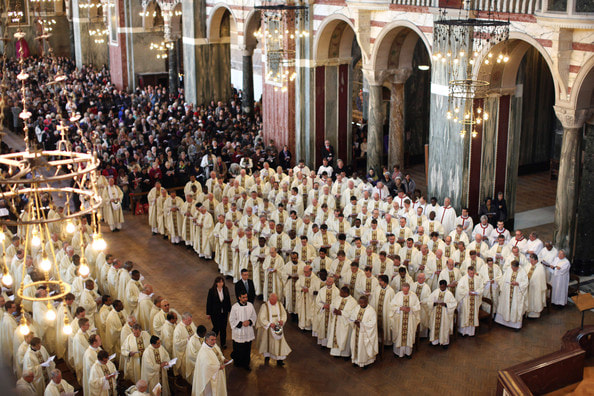

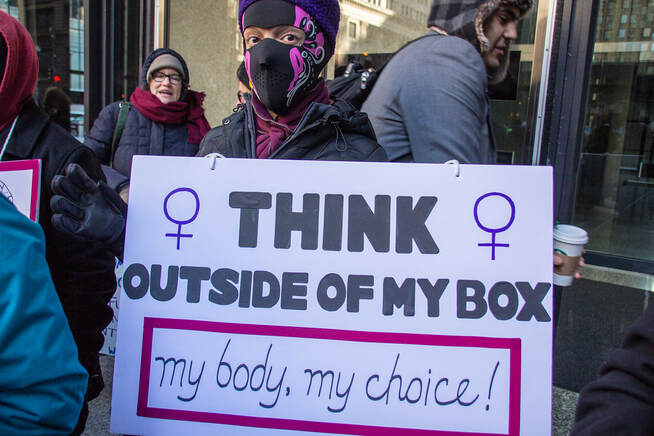

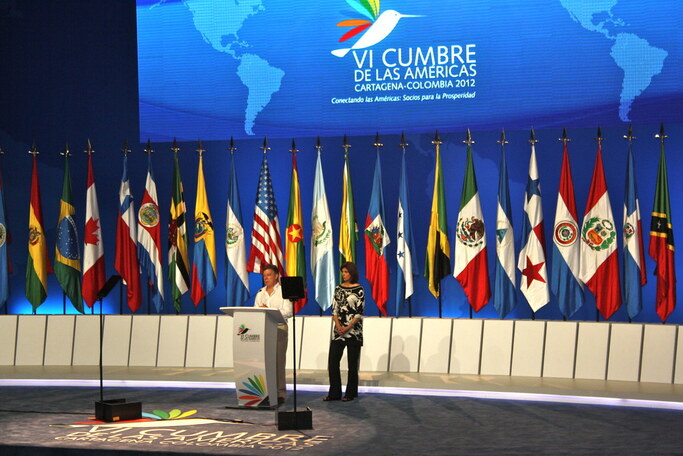

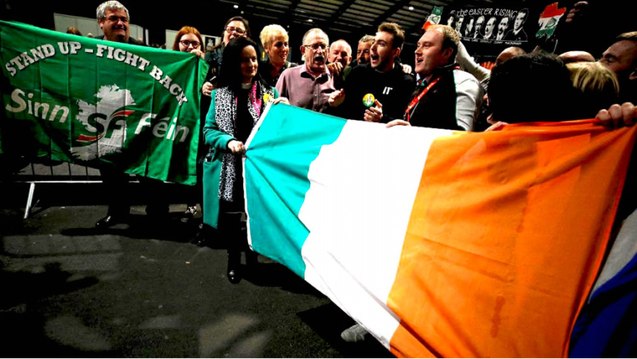

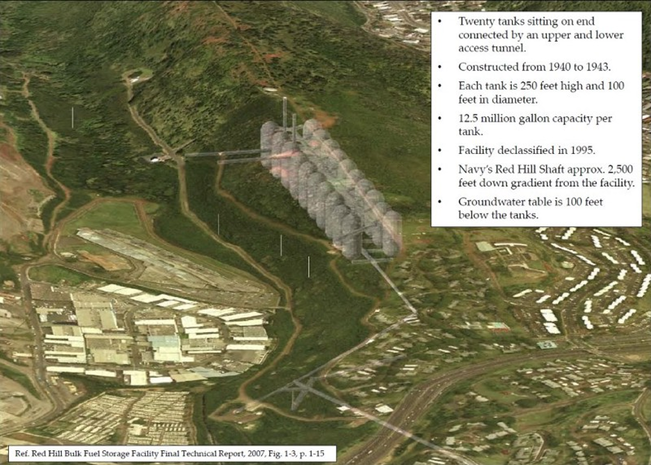




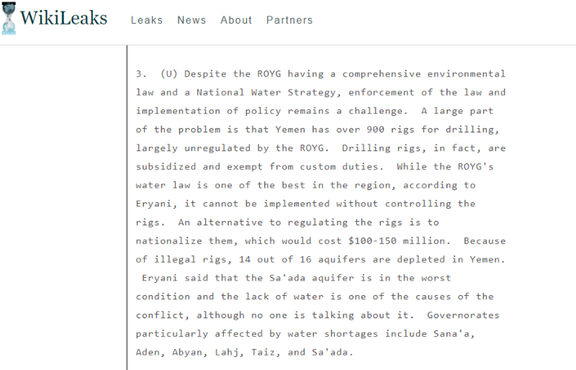
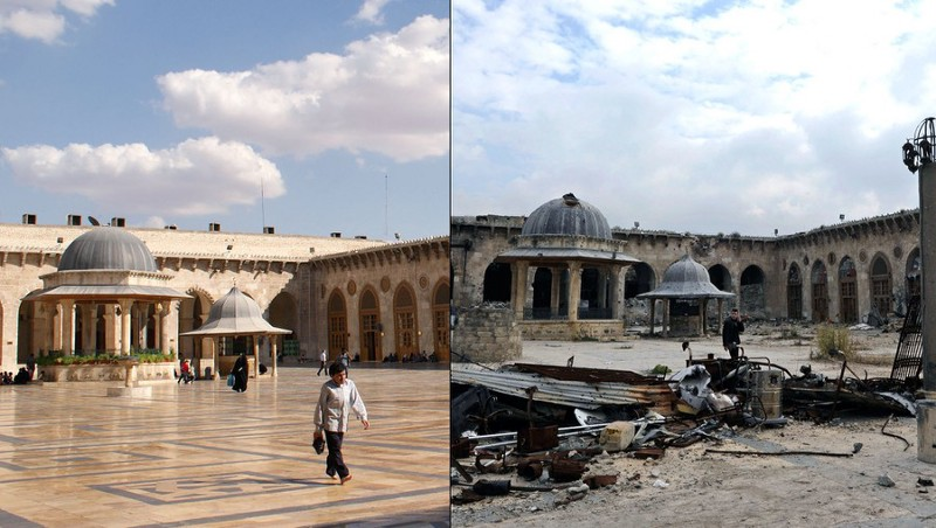

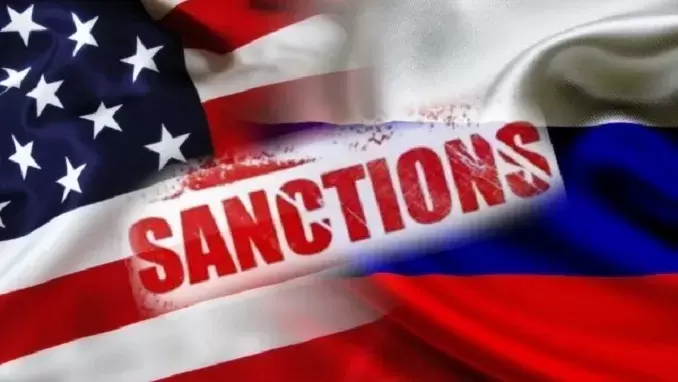


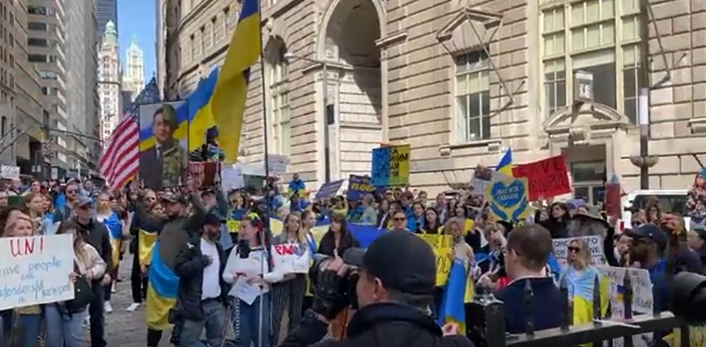
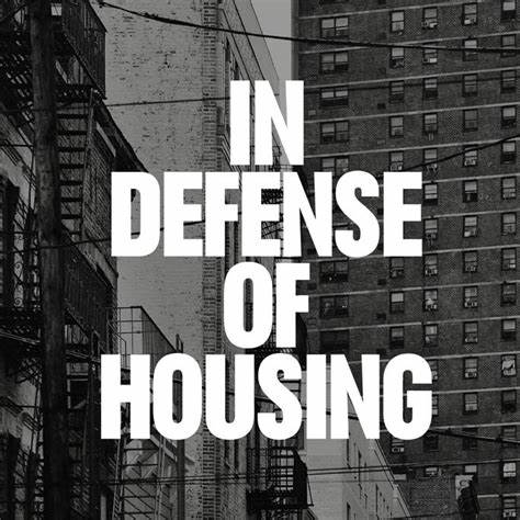
 RSS Feed
RSS Feed